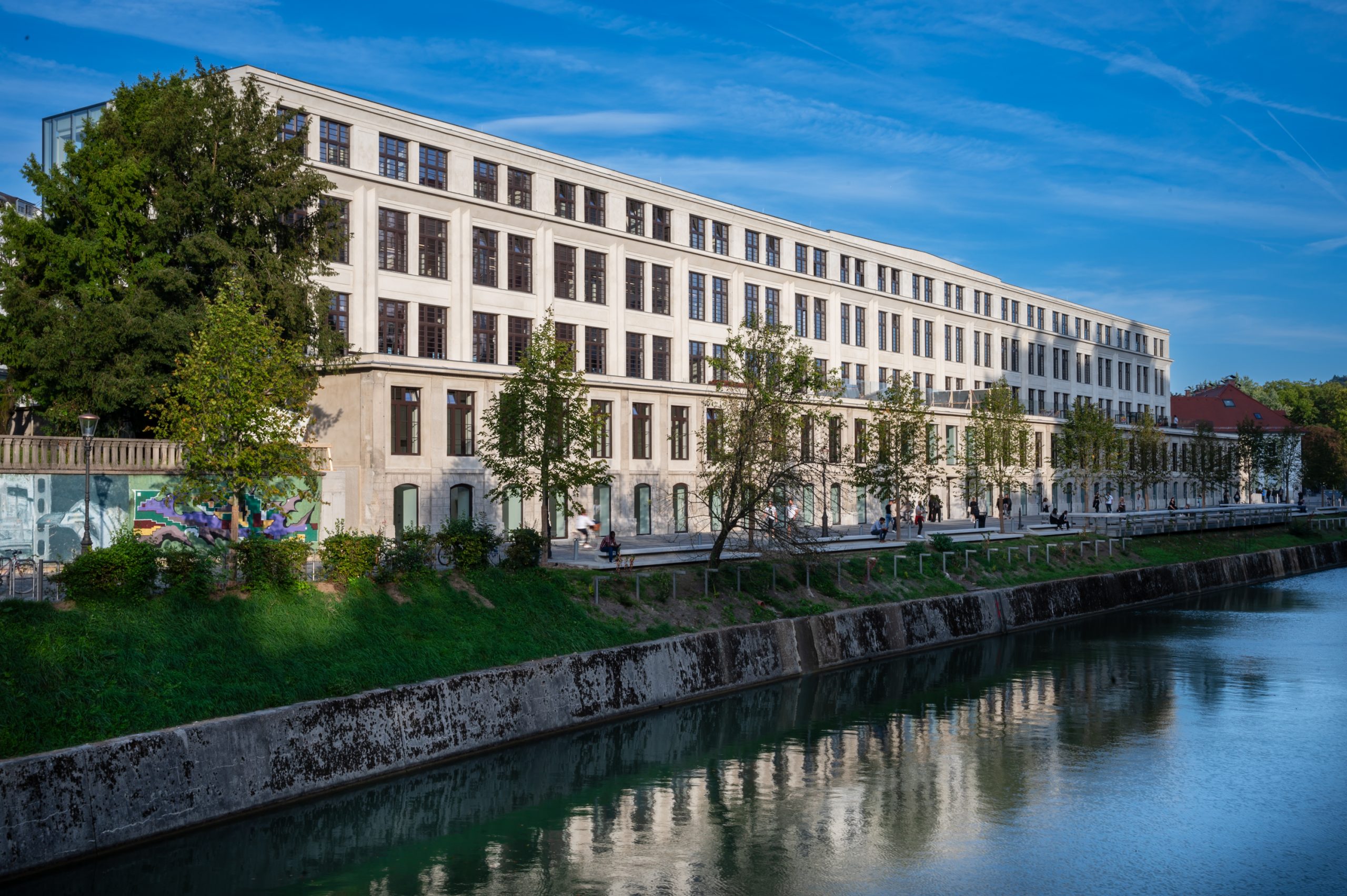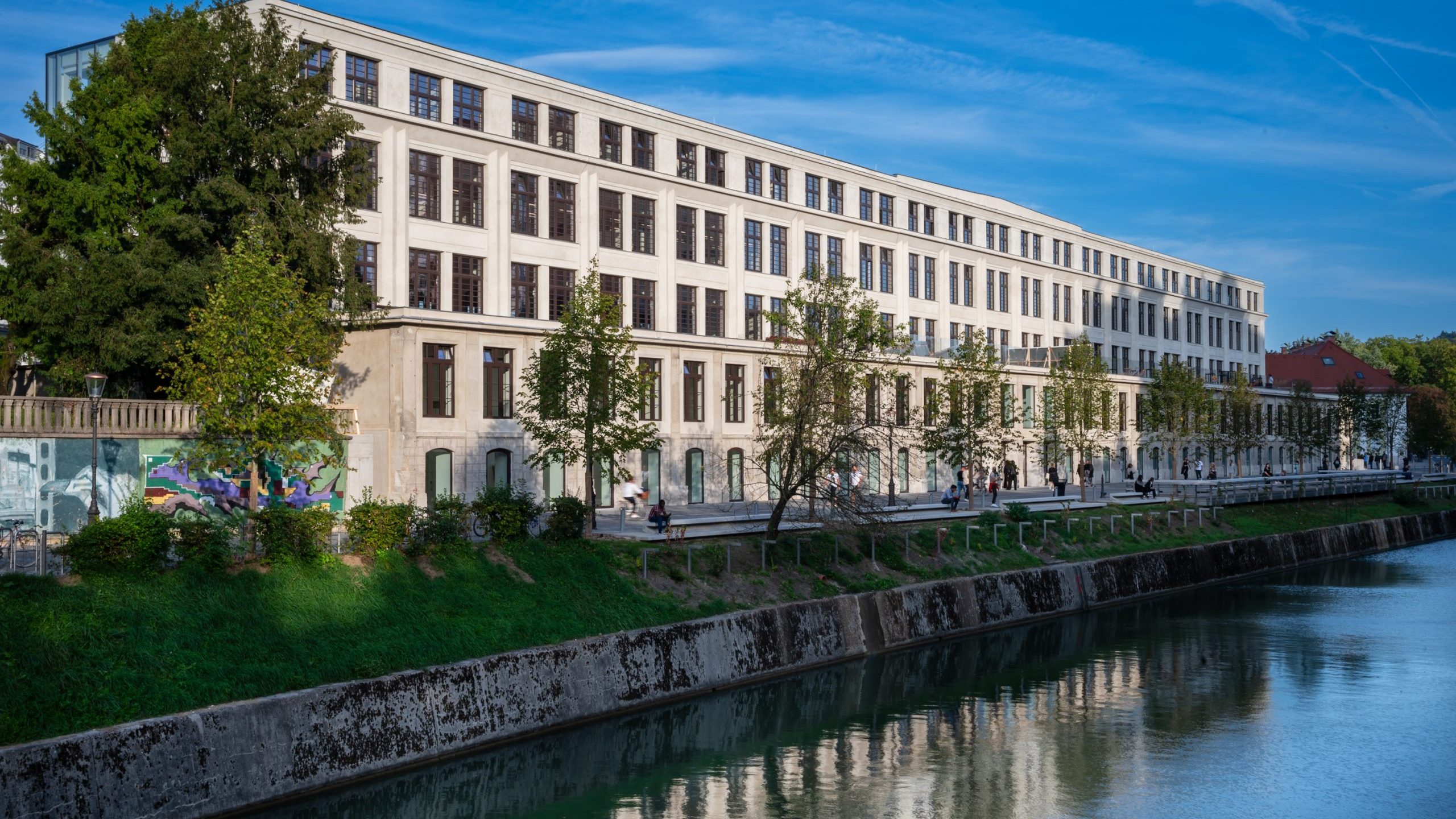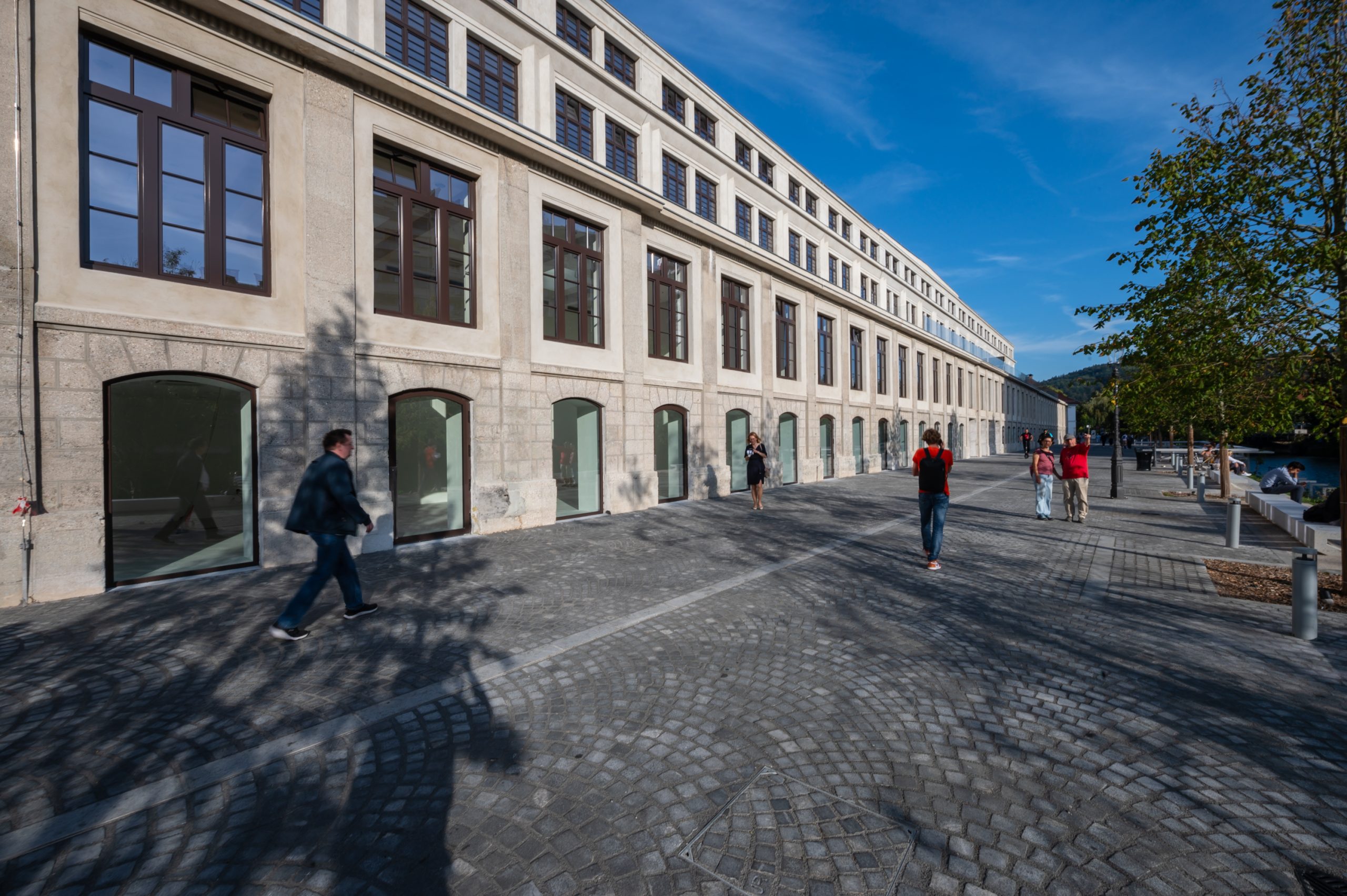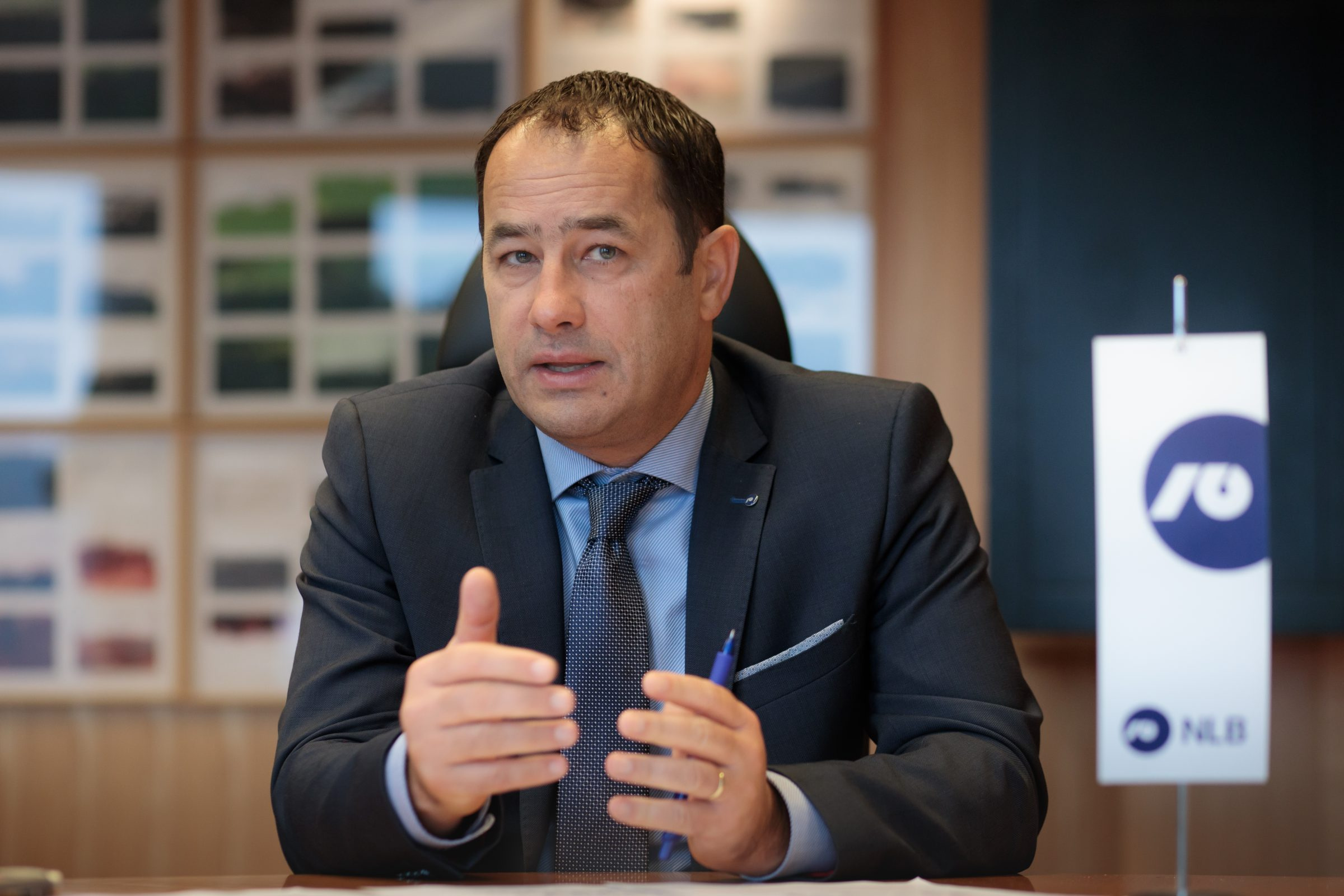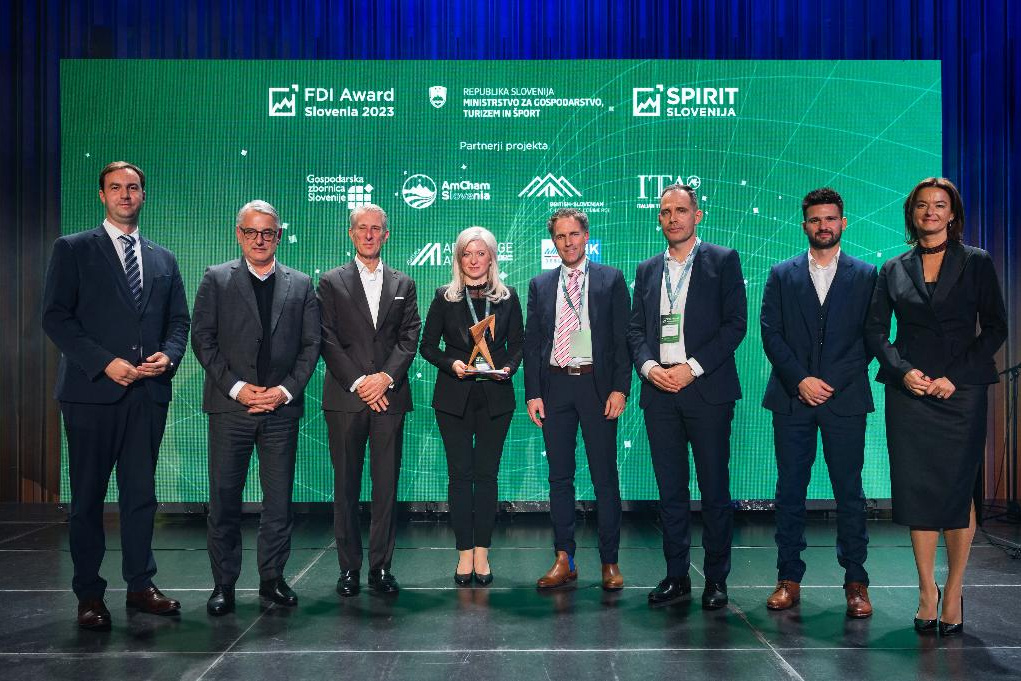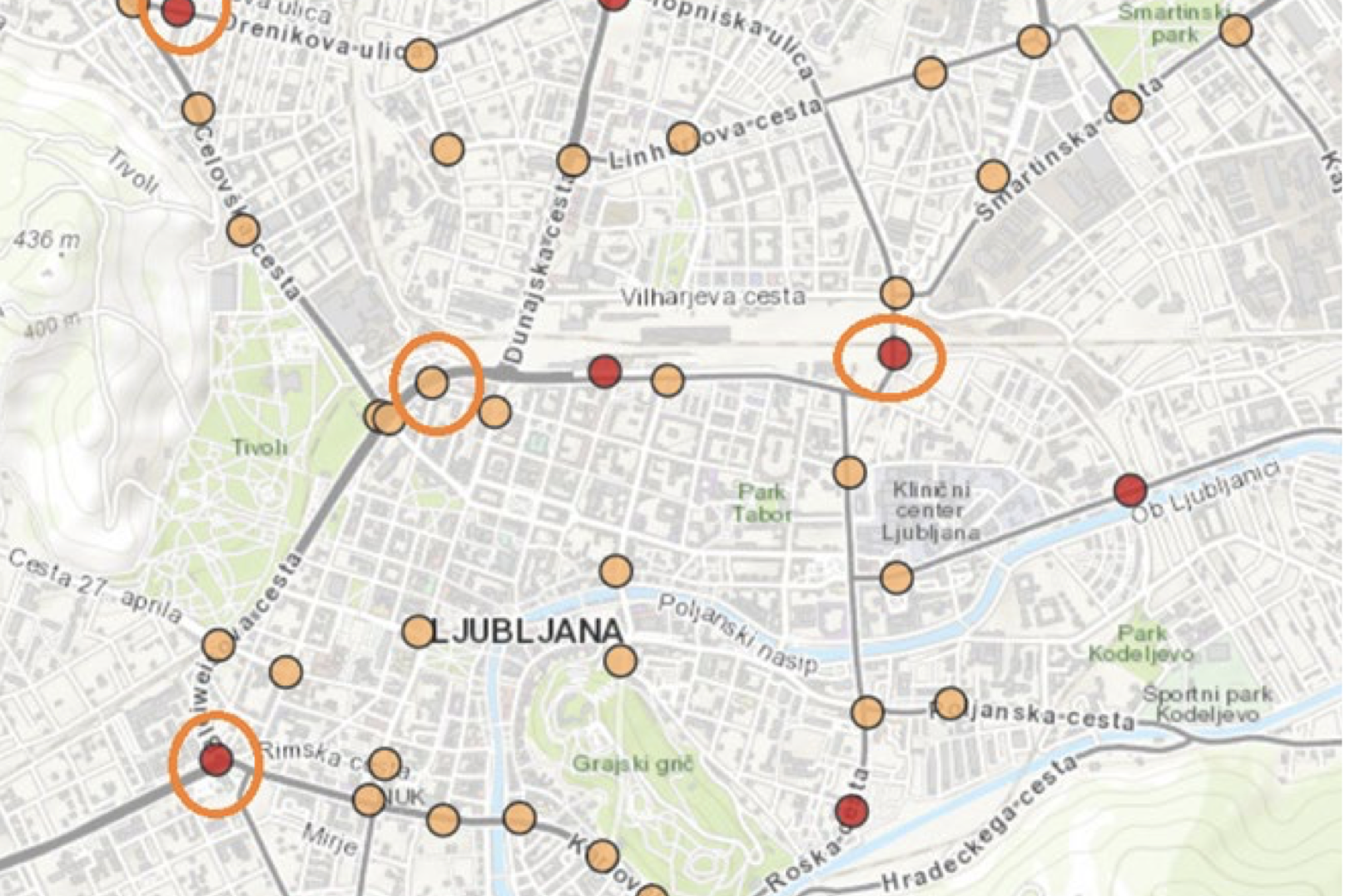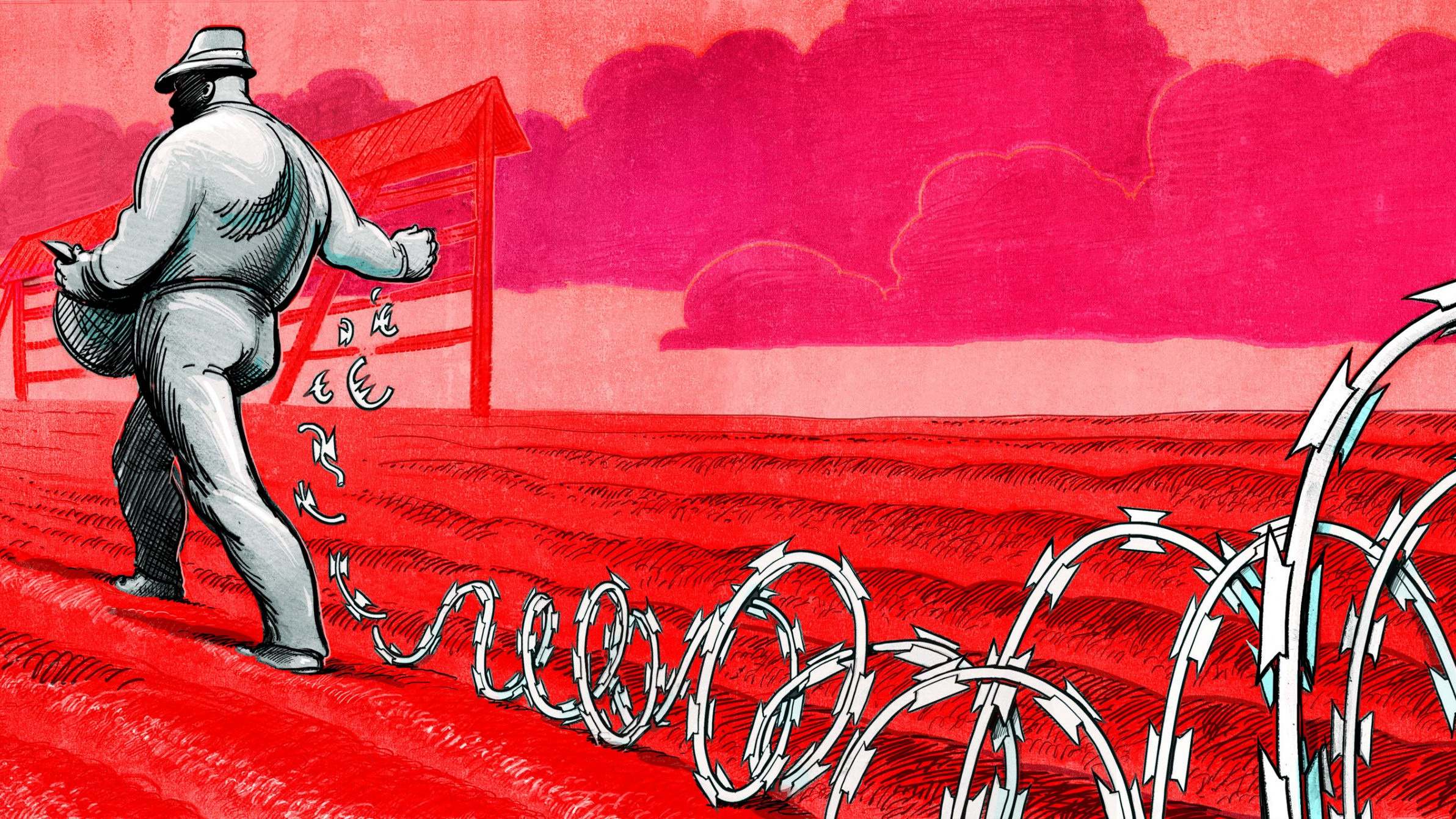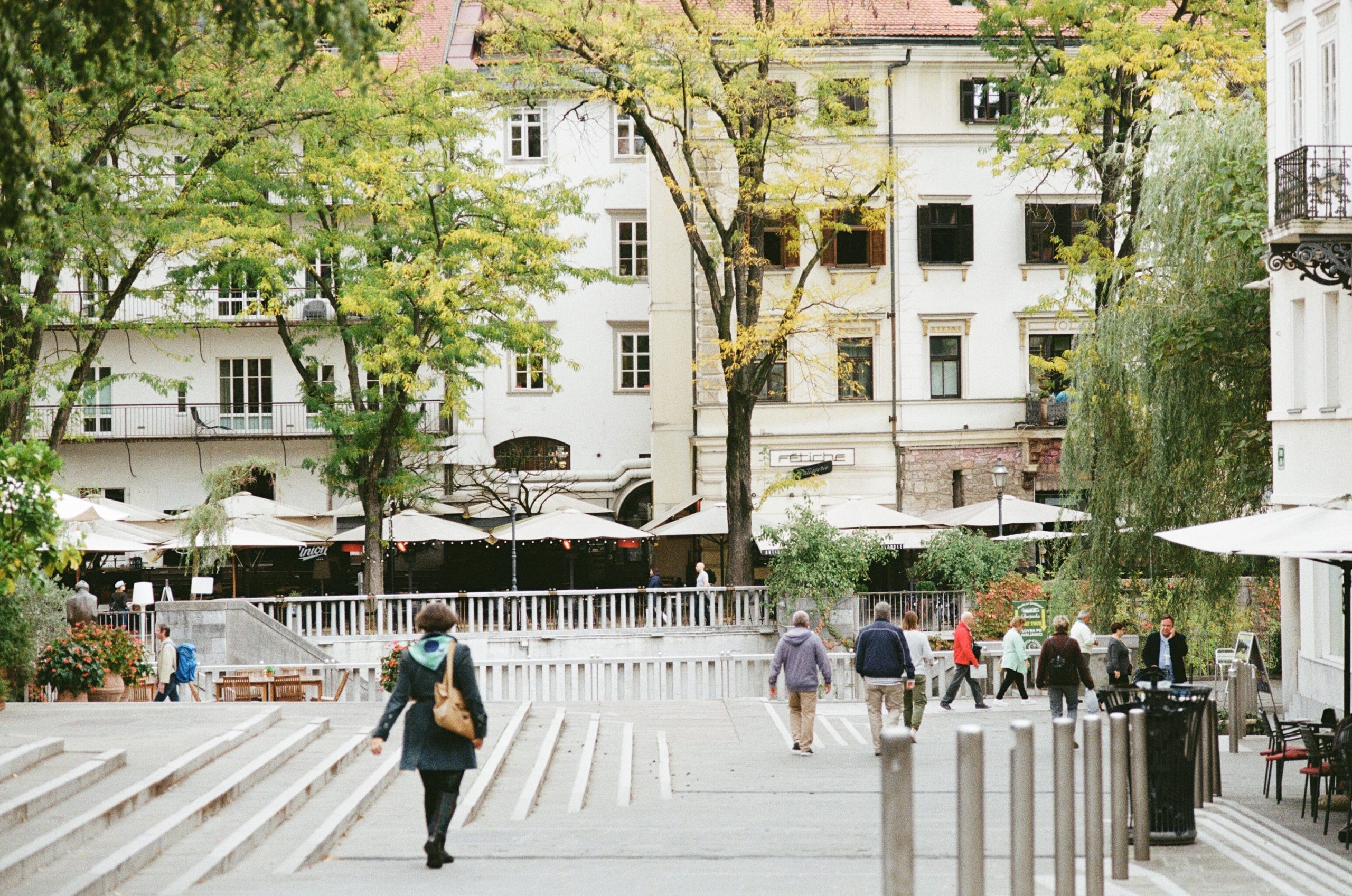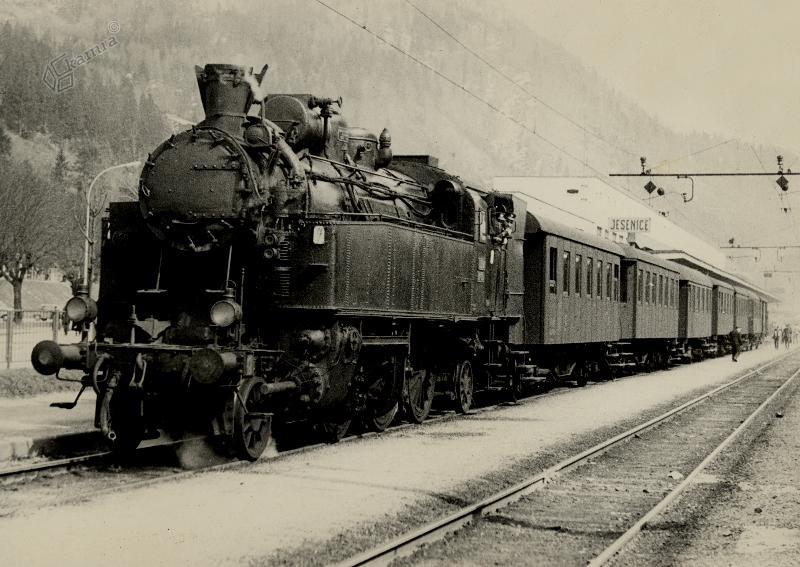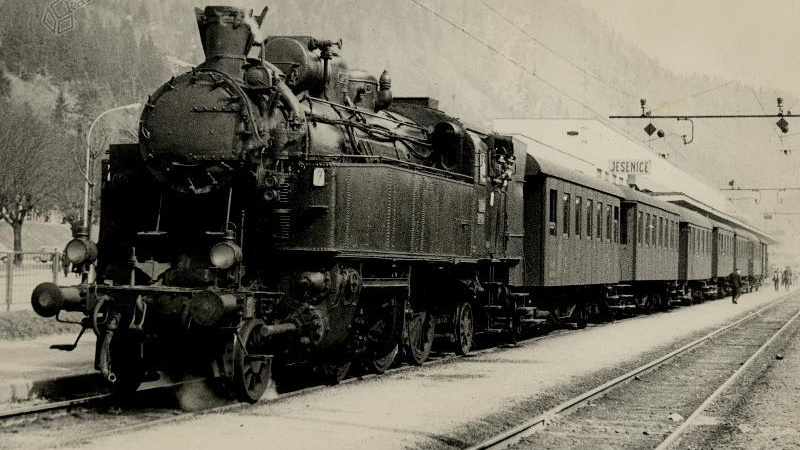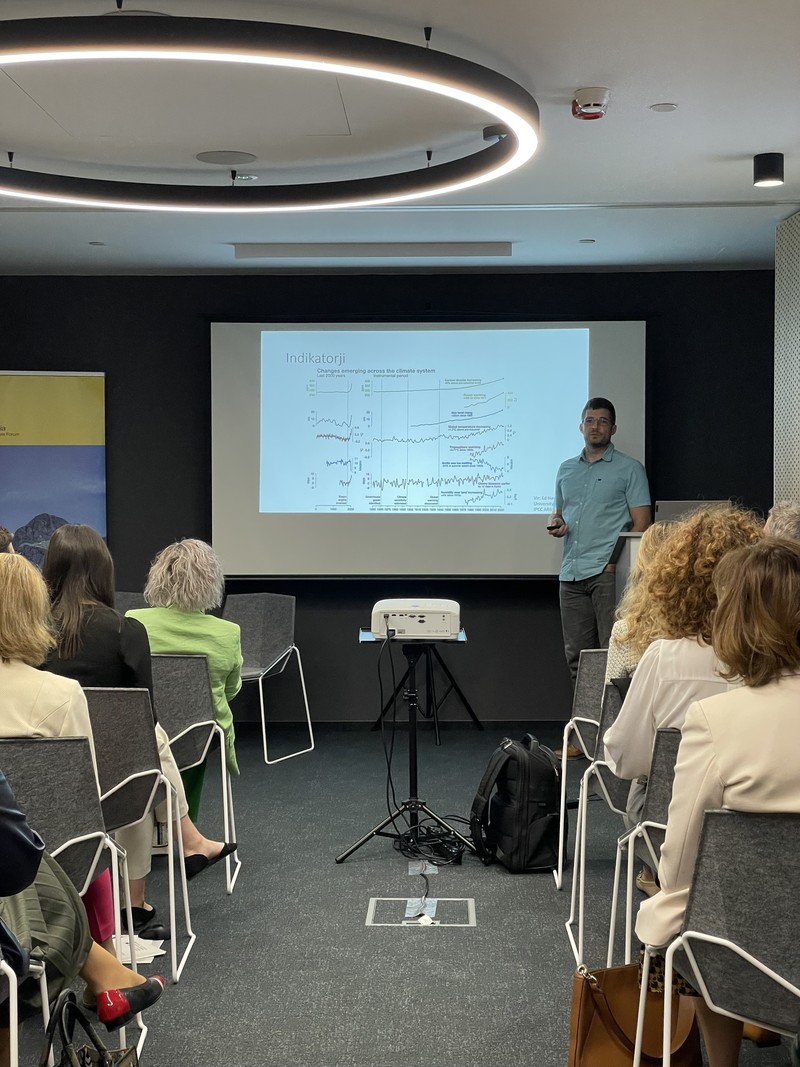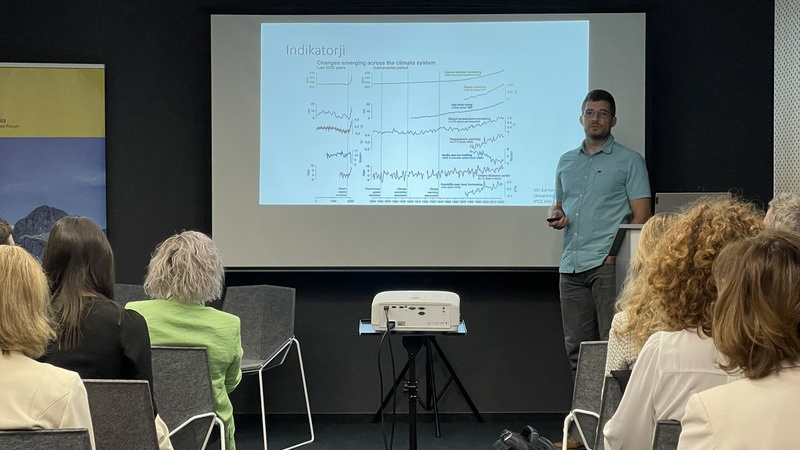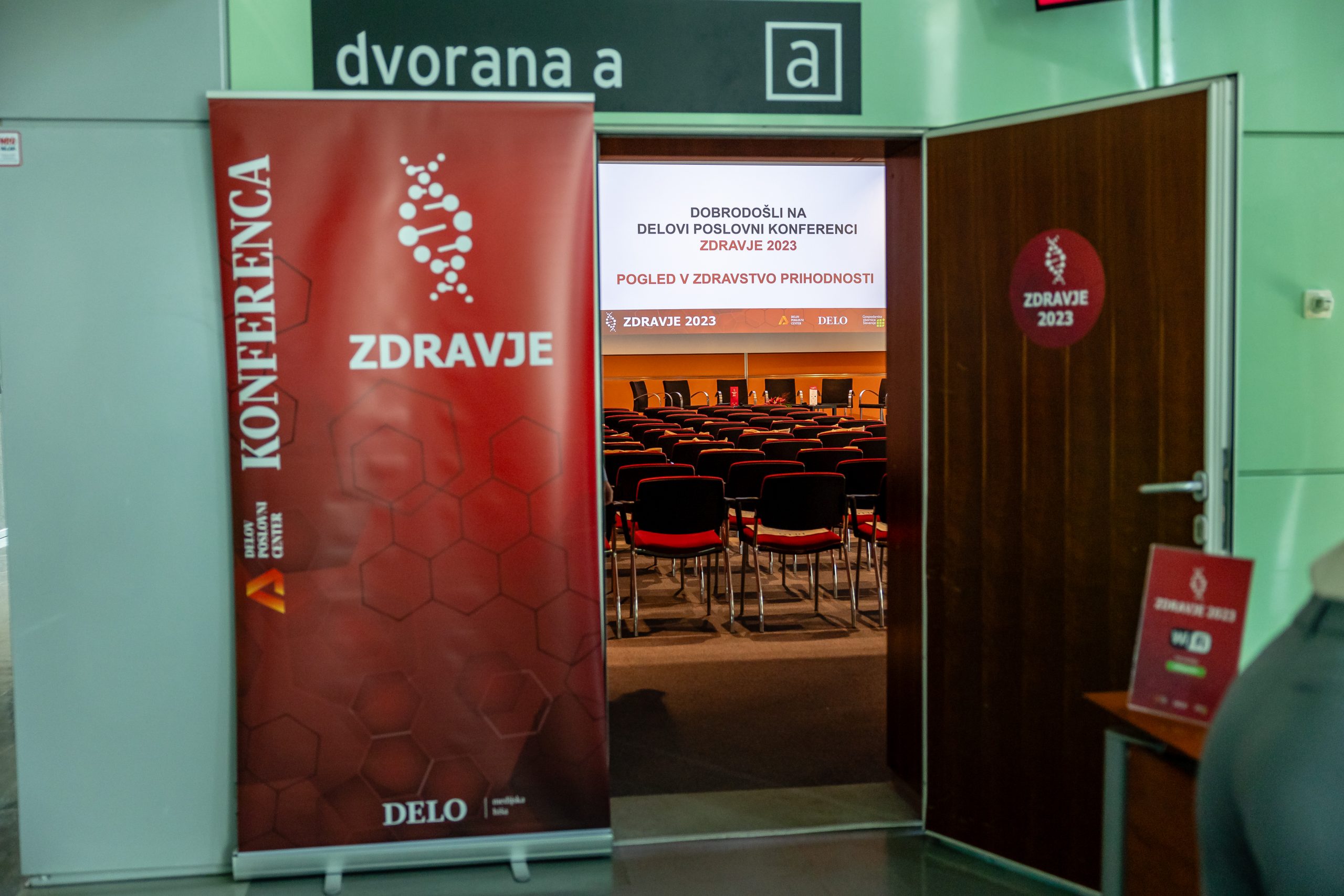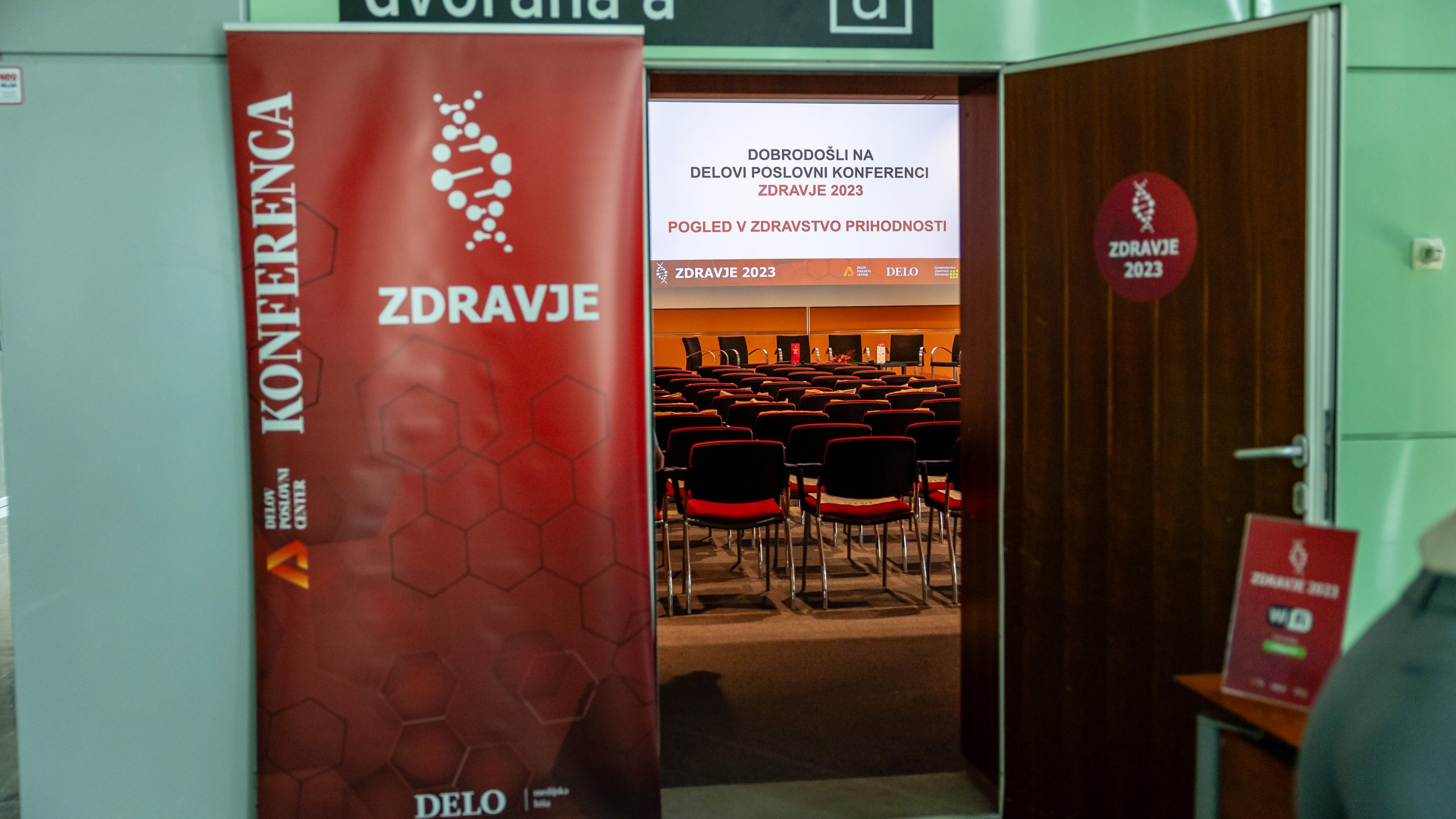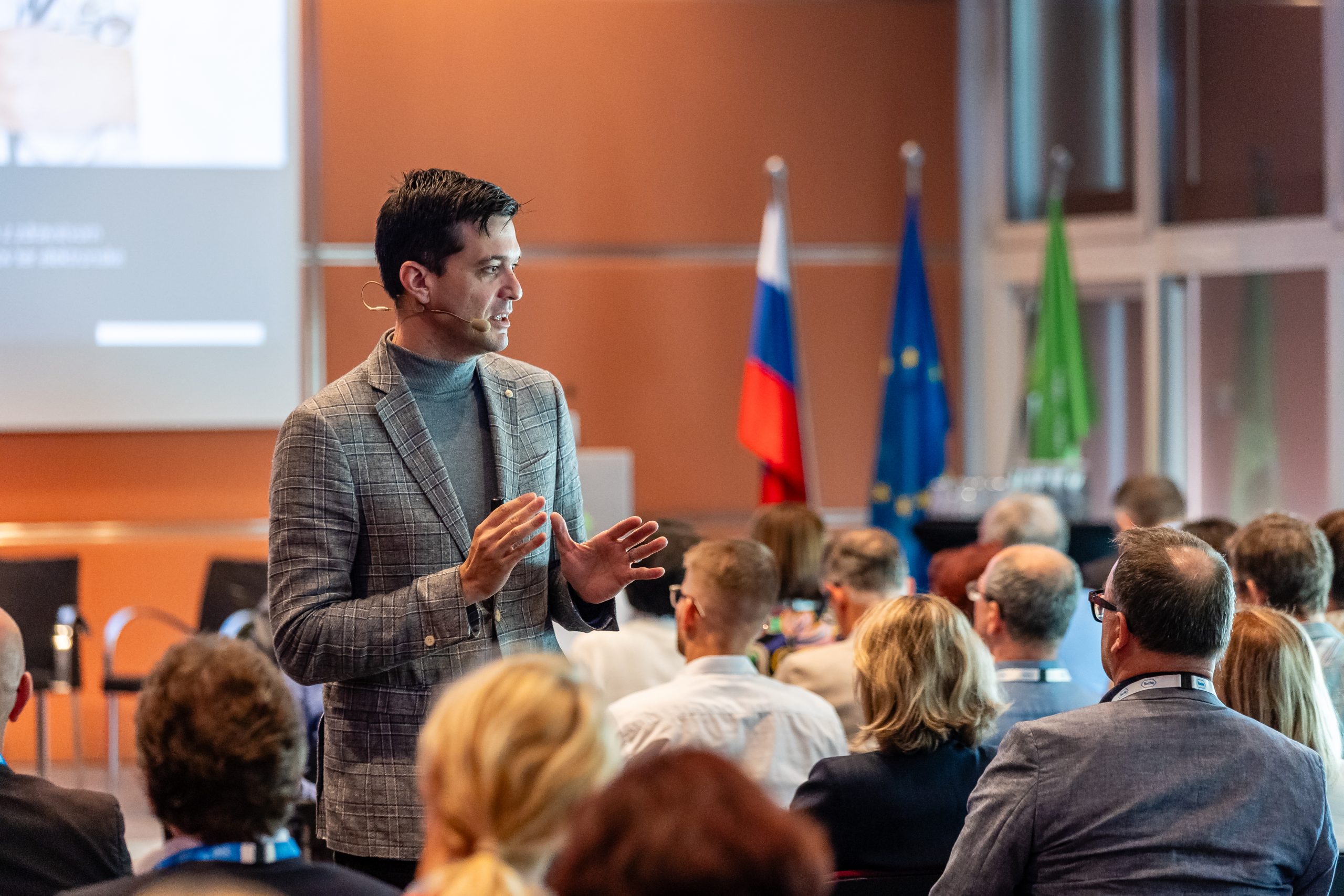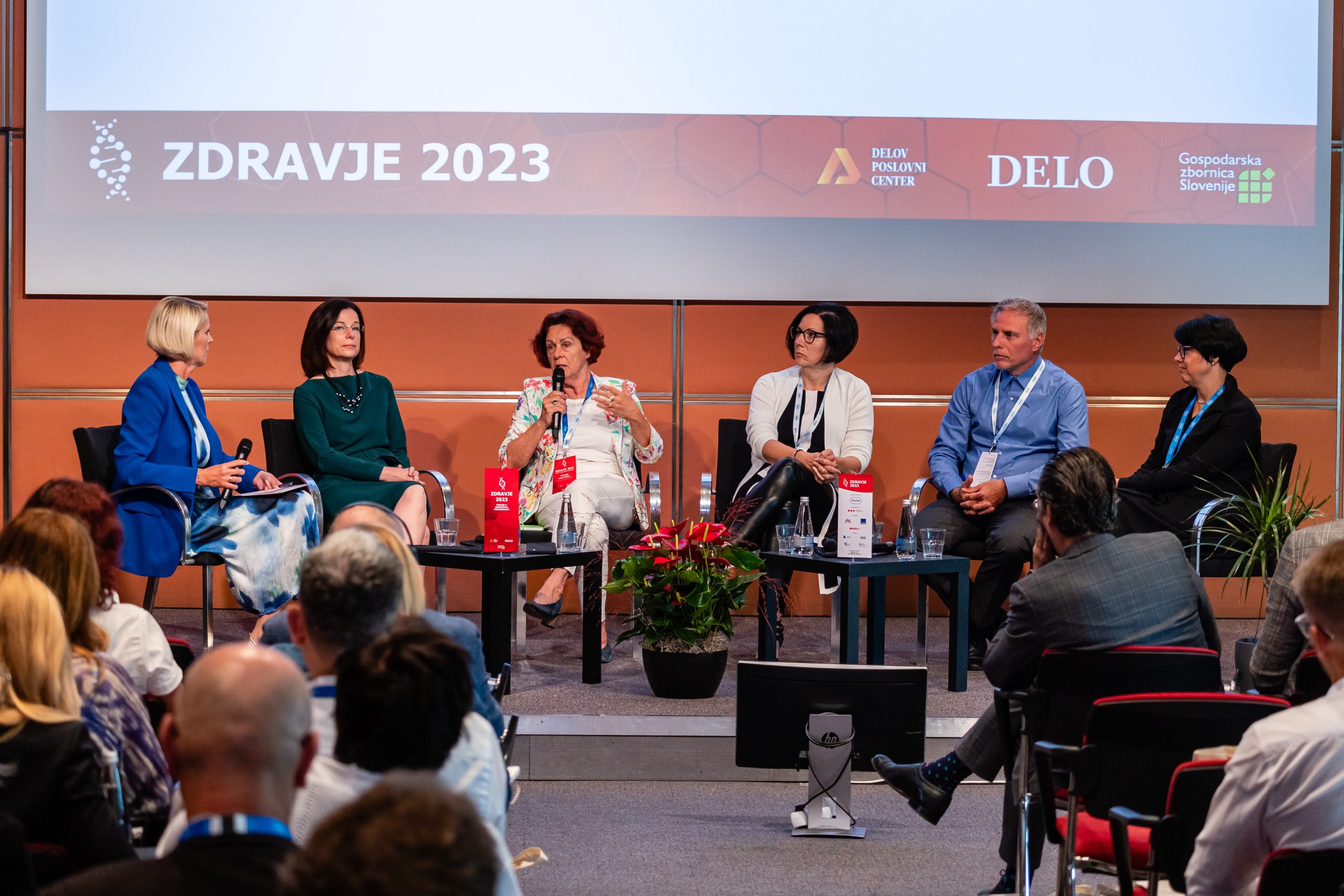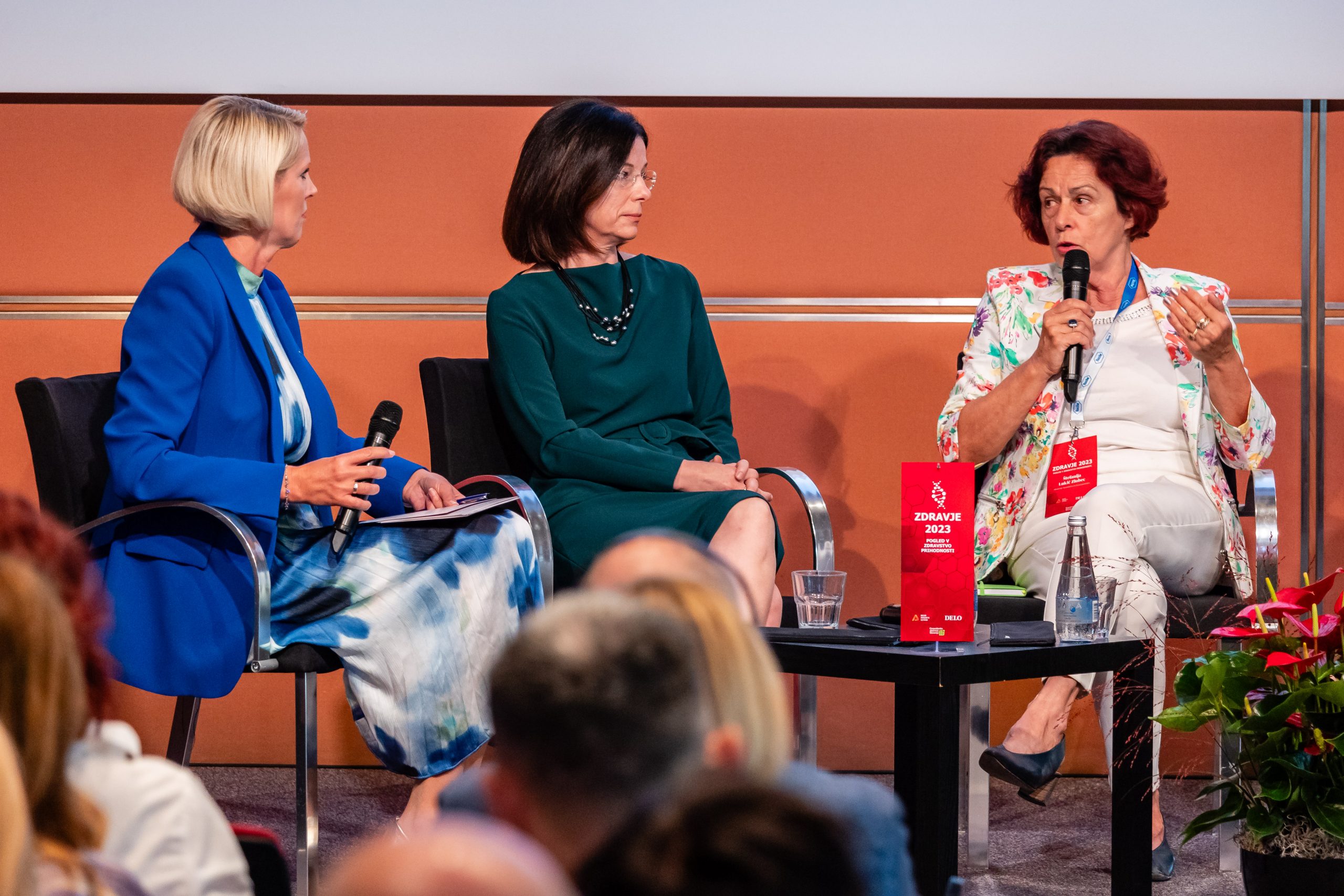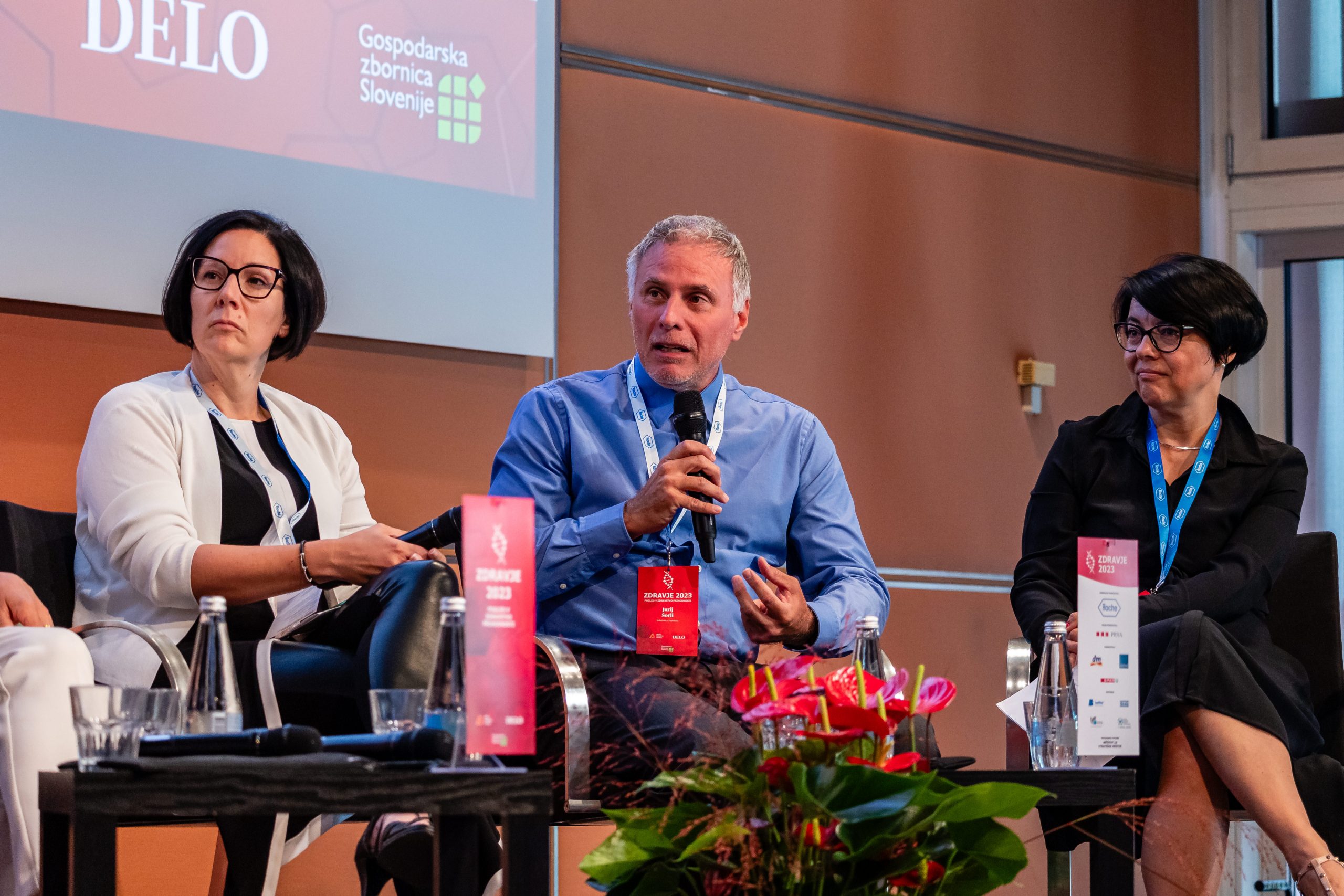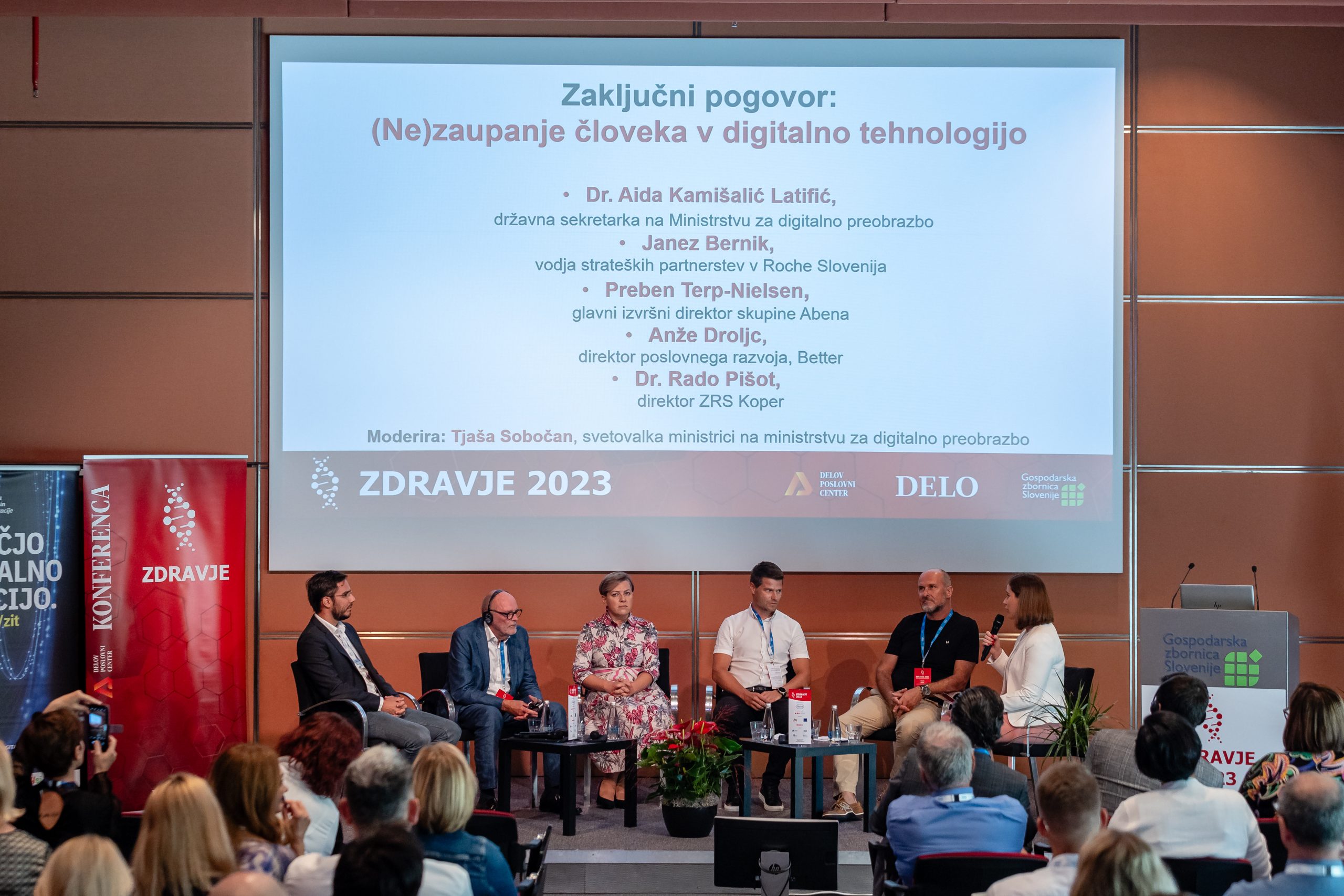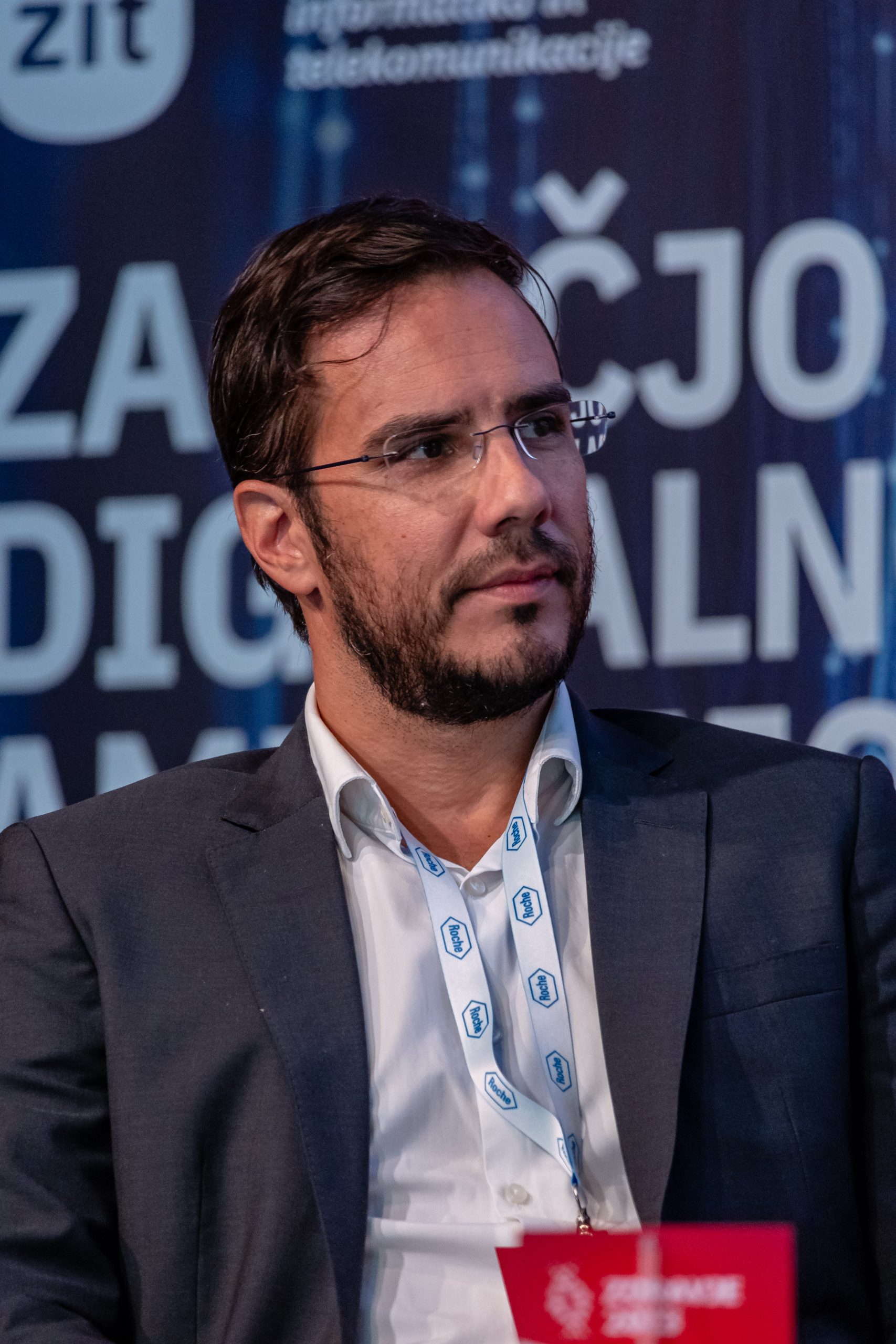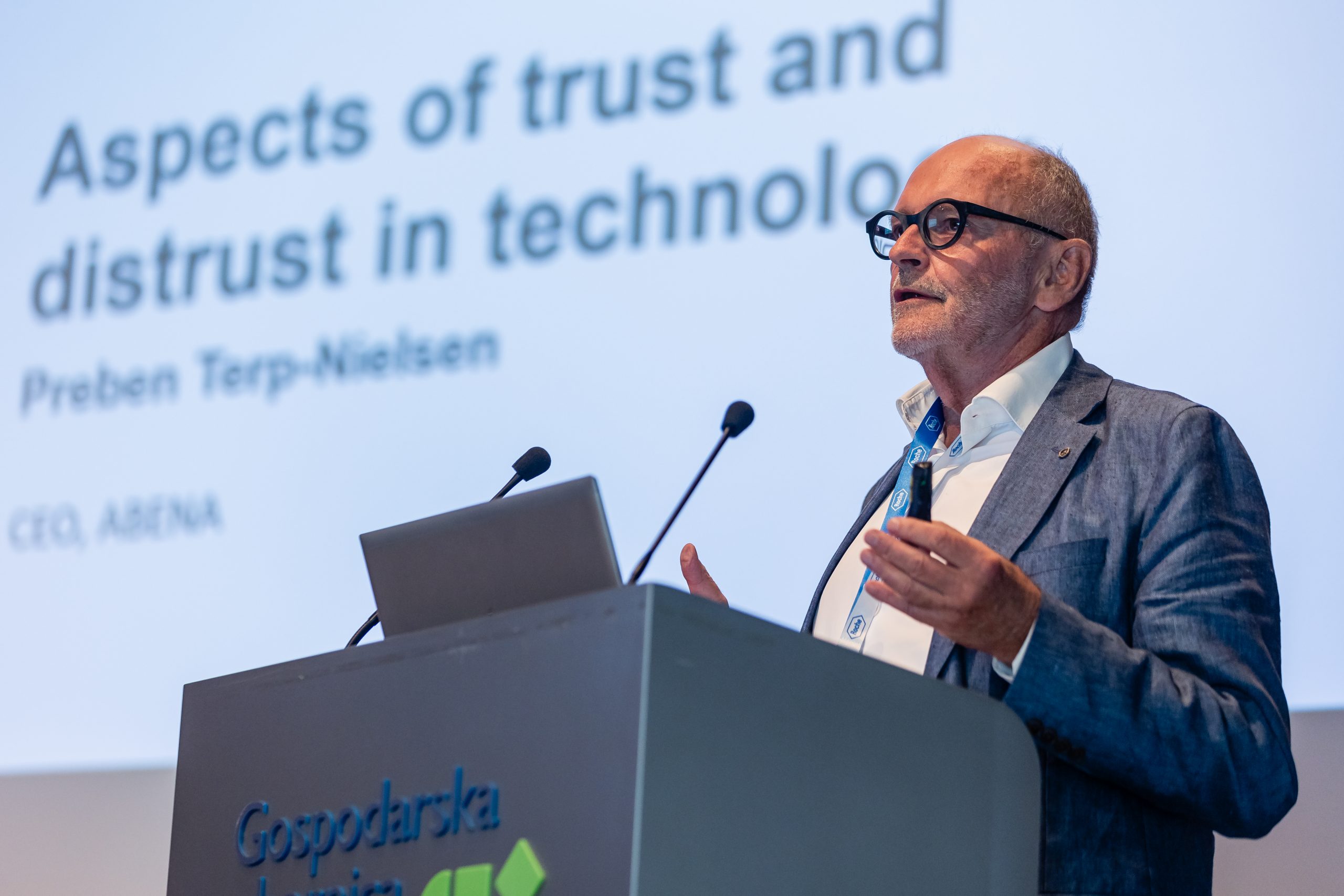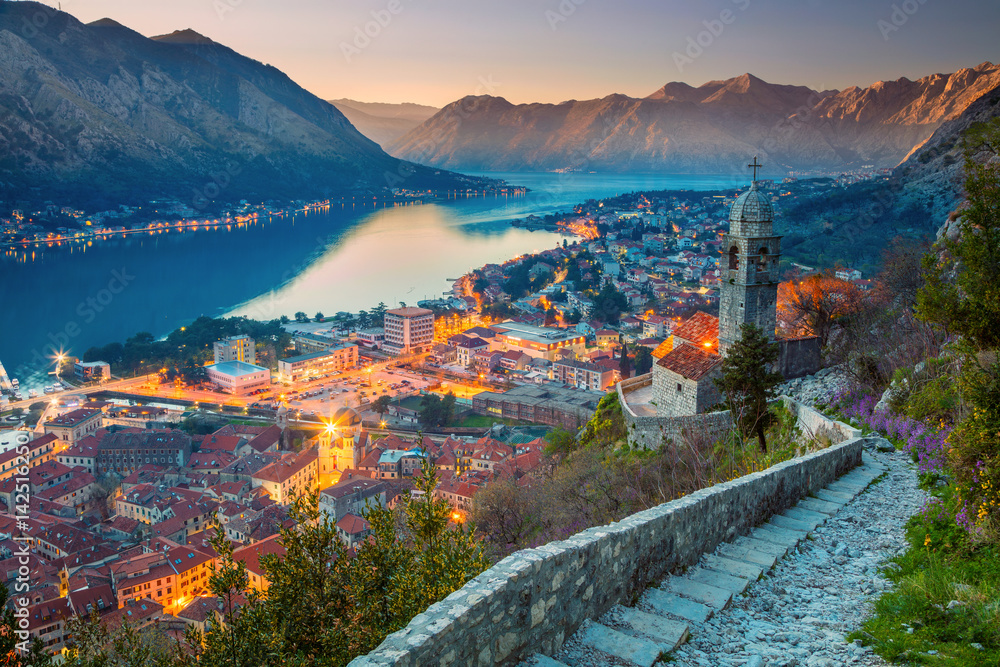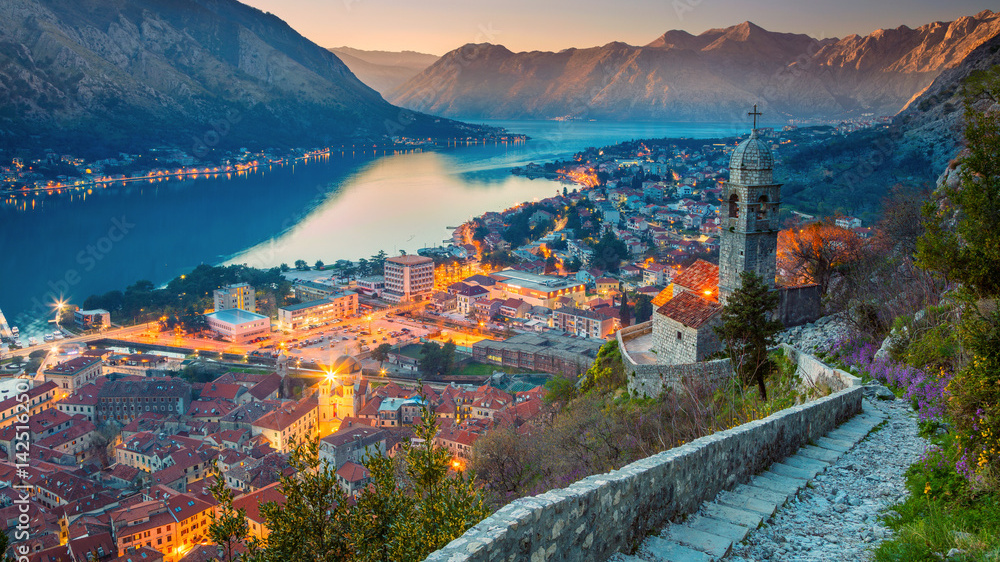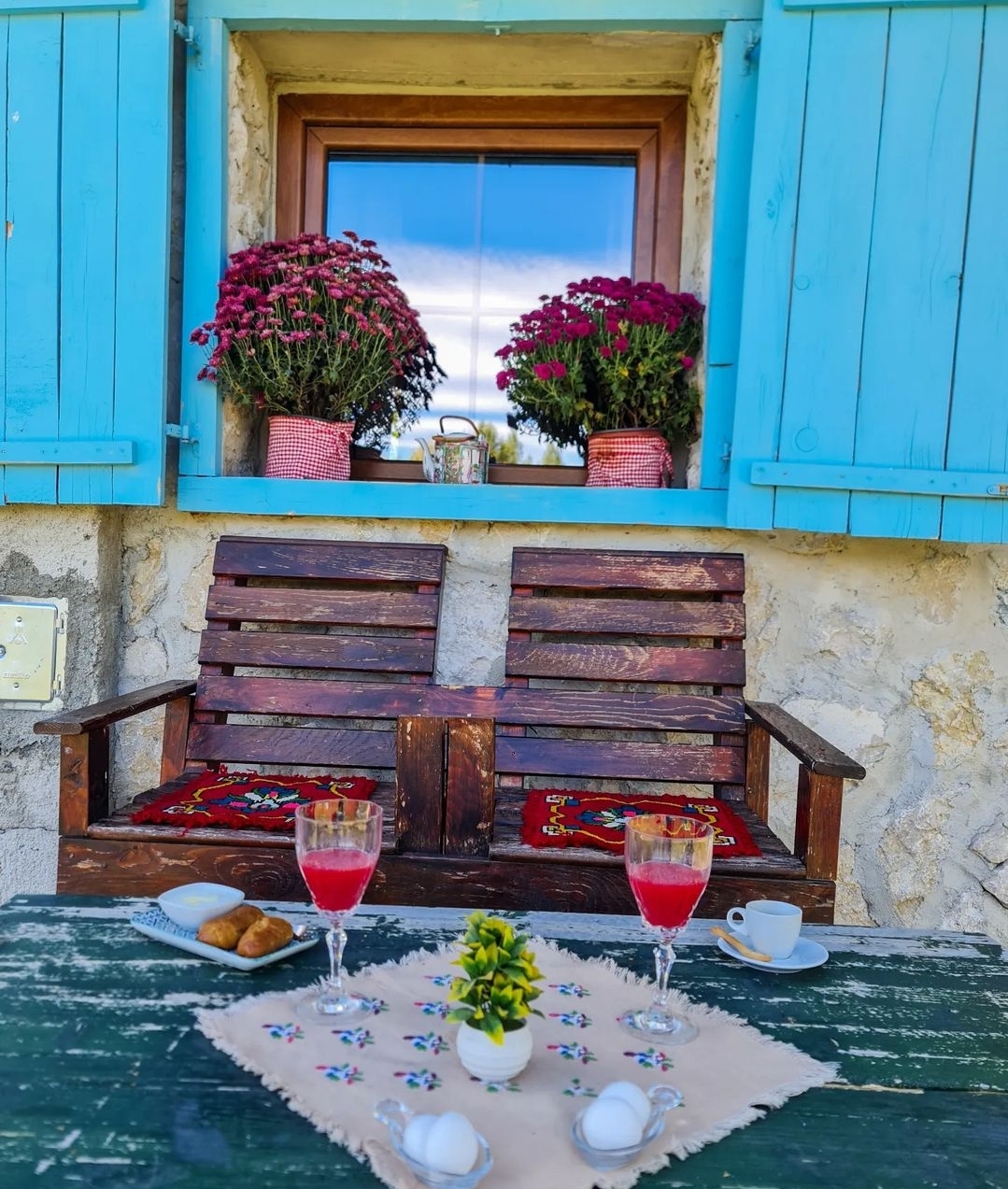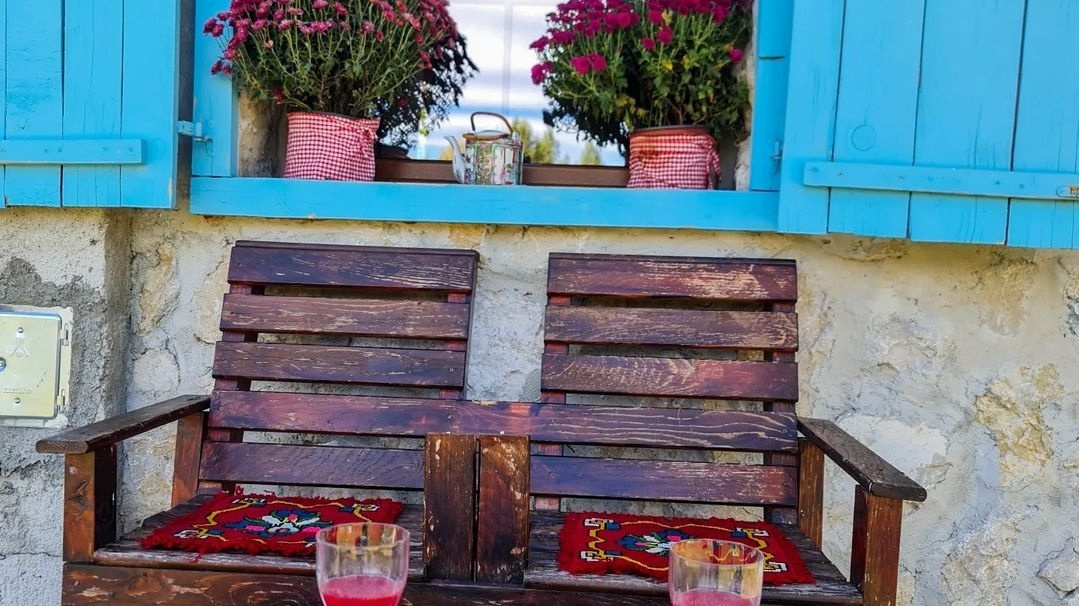Centre Rog: An Urban Renaissance
editor
THE ADRIATIC TEAM
Photos by: Centre Rog
On the 26 October, at the far end of the Petkovškovo embankment in Ljubljana, where reverberations of the city's historic Trubar street meld with the contemporary urban scene, the iconic Centre Rog has opened its doors once more - a reincarnation that holds the promise of a creative renaissance. Amidst a global era of digitalisation and increasingly superficial interactions, it emerges as a haven for tangible craftsmanship and genuine human connection.
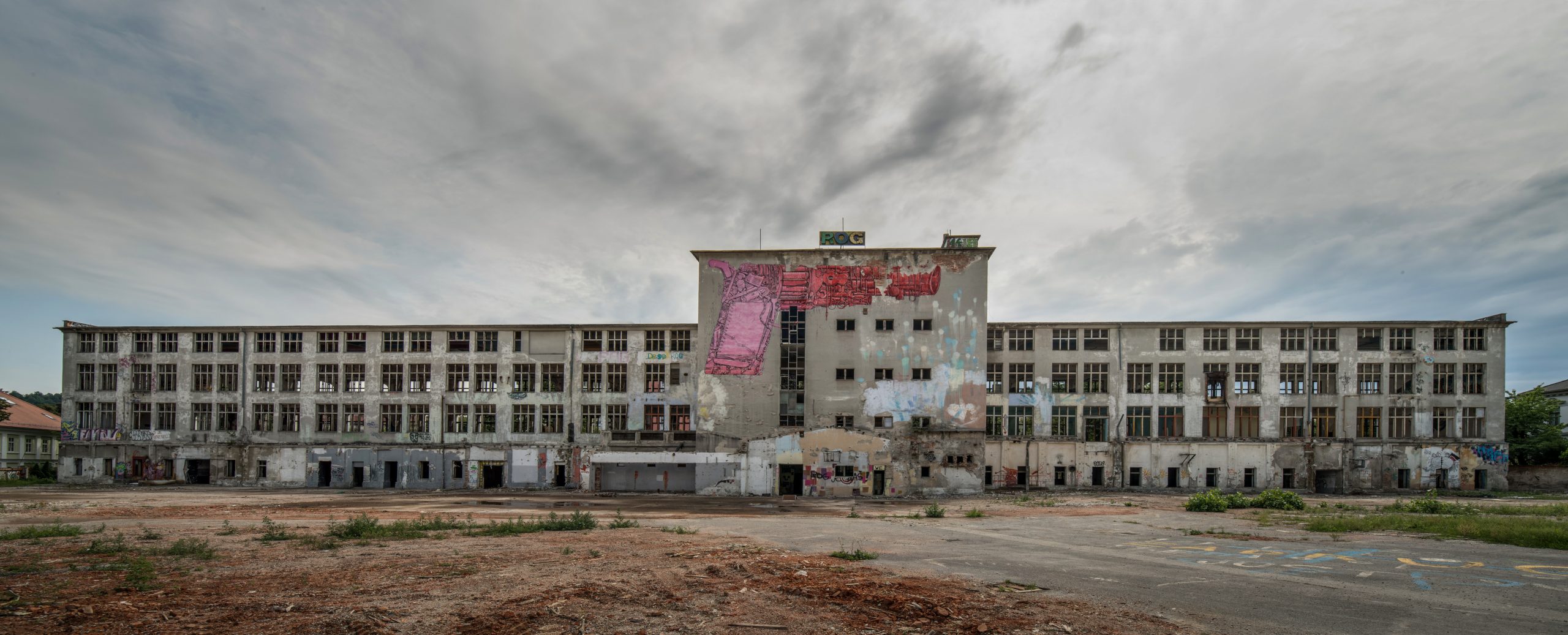
The centre, encapsulated in sturdy yet charming industrial aesthetics, is more than a building; it’s a living testament to Ljubljana’s artistic spirit and its pursuit of enabling a community-centrered workshop for its inhabitants. At the core of this urban oasis will be a collection of nine labs , each serving to fulfill the needs of students from the various faculties of the University of Ljubljana and the creative endeavours of the public, helping shape ideas into reality. Whether it’s metalworking, ceramics, textiles, or 3D printing and laser workshops, there’s a niche for every craftsman that allows their imagination to roam.
Its philosophy of ‘do-it-yourself’ extends an invitation to students, the unemployed, retirees, and asylum seekers, amongst others. With a membership fee as nominal as €15, or €10 for the aforementioned groups, the centre will ensure that the tools and space for creation are within reach for all. Members have the liberty to choose from three different user packages, each tailored for a person’s needs and capacities.
Like in the past, the present iteration of Rog endeavours to foster a diverse community where entrepreneurial and artistic visions meld together. The boutique in the ground floor will offer a variety of items for sale, handcrafted by the centre’s users.
Ascend through the connecting glass foyer, the first floor will house a library with 20,000 units of to choose from. Yet, it’s the specialized collection focusing on design, architecture, and other applied arts that sets it apart, not forgetting a children’s corner dedicated to the little ones.

Rog is a place where the day starts with the noise and whirr of machinery and ends with hearty laughter echoing through the halls. The centre’s restaurants and cafe aren’t just a place to satiate hunger, but a hub where ideas are exchanged over steaming cups of coffee and where the city’s denizens come together to celebrate the joy of making.
Master of Gallows Humour – Ciril Horjak
editor
Alenka Žvikart
JOURNALIST AT THE ADRIATIC
The first thing that might have attracted you to our magazine is the captivating front page. Last year's edition, for example, provides a polarising effect, chaos on one side and serenity on the other - geopolitics in a nutshell. The genius behind the illustration is Slovenian Carinthia's finest, Ciril Horjak.
Horjak was born in Slovenj Gradec, the city of peace, yet his illustrations are anything but peaceful. His witty use of gallows humour translated into comics enables him to tell a story in a matter of seconds, make a lasting impression on the reader and provoke critical thinking all at once. Horjak is a prolific creator working for the Saturday supplement of the Večer newspaper, to which he had contributed a whopping 1800 comics, which took 892 weeks to create in total. His admirable work ethic and a plentiful amount of art, also made among the more hidden areas such as charities and the dental industry, adorned Ciril Horjak with many awards. In 2010, he received an award from the Slovenian Institute for Adult Education and in 2016, he received an award from the Society of Slovenian Journalists.
Admire the art up close
The Gallery S in Ljubljana Castle currently holds an exhibition of newspaper sketches by Ciril Horjak titled Selection. The show portrays only about 2 per cent of Horjak’s vast opus, but the unique ‘rushed art’ style ties all the pieces together. Dr. Horowitz, the author’s creative alias, is always in a hurry to create comic strips so he can report on the current state of affairs as quickly and accurately as possible. “In a way, I’m delighted, joyful even, that the drawings can evoke various emotions, I can’t even imagine it,” says Horjak in an interview. The artist also adds that he usually creates his drawings in a dark cellar apartment, where he does not have a chance to discuss his work. He is consequently pleasantly surprised that the public took such a liking to his art. If you find yourself in Ljubljana in the next couple of weeks, don’t give the exhibition a miss, it is on only until November 5th.
Slovenia's Pioneering Path in Data-Driven Healthcare: A Global Blueprint?
Digital Transformation
editor
Barbara Matijašič
JOURNALIST AT THE ADRIATIC
In the era of digital transformation healthcare is changing swiftly, with patient expectations shaped by experiences in other sectors. Slovenia has set itself an ambitious goal to meet those expectations by 2027 with an e-health strategy that has placed the patient at the centre of the healthcare system.
Slovenia is in a good position to meet the goal, says Elina Drakvik, senior lead at Finnish Innovation Fund Sitra/TEHDAS.
»Slovenia was an early adopter of e-health and almost all health data is digitized«, she notes. »It is clear that Slovenia has made significant advances in accelerating and integrating the use of digital technologies in healthcare, and the Slovenian eHealth Strategy from 2022 identifies key issues for continuing this development and reaching towards excellence.”
The strategy involves reshaping processes, optimizing data use, enforcing robust governance, and ensuring inclusivity. It aspires to make eHealth one of the most efficient, user-focused, and sustainable digital health systems in the European Union. Some of it’s key objectives include:
Better health of the population: Ensure that healthcare initiatives and data-driven decisions lead to positive health outcomes.
Responsive, successful, and stable health system: Build a health system that can flexibly adapt to the evolving needs of the population, ensuring that healthcare services remain effective and reliable.
Higher user satisfaction: Improve satisfaction levels among those delivering and receiving health services.
Fairness in financial contribution: Ensure that access to quality healthcare services is fair and accessible to all.
Implementation is crucial
Successful implementation of digital technologies is, of course, crucial and involves various stakeholders playing vital roles, Drakvik remarks. She adds, however, that Slovenia’s e-health system has strong foundation to build on and can also support integrations with health systems beyond its borders.
“Slovenia has a well-developed health information system with a strong technical infrastructure to support the future implementation of the European Health Data Space«, Drakvik concludes.
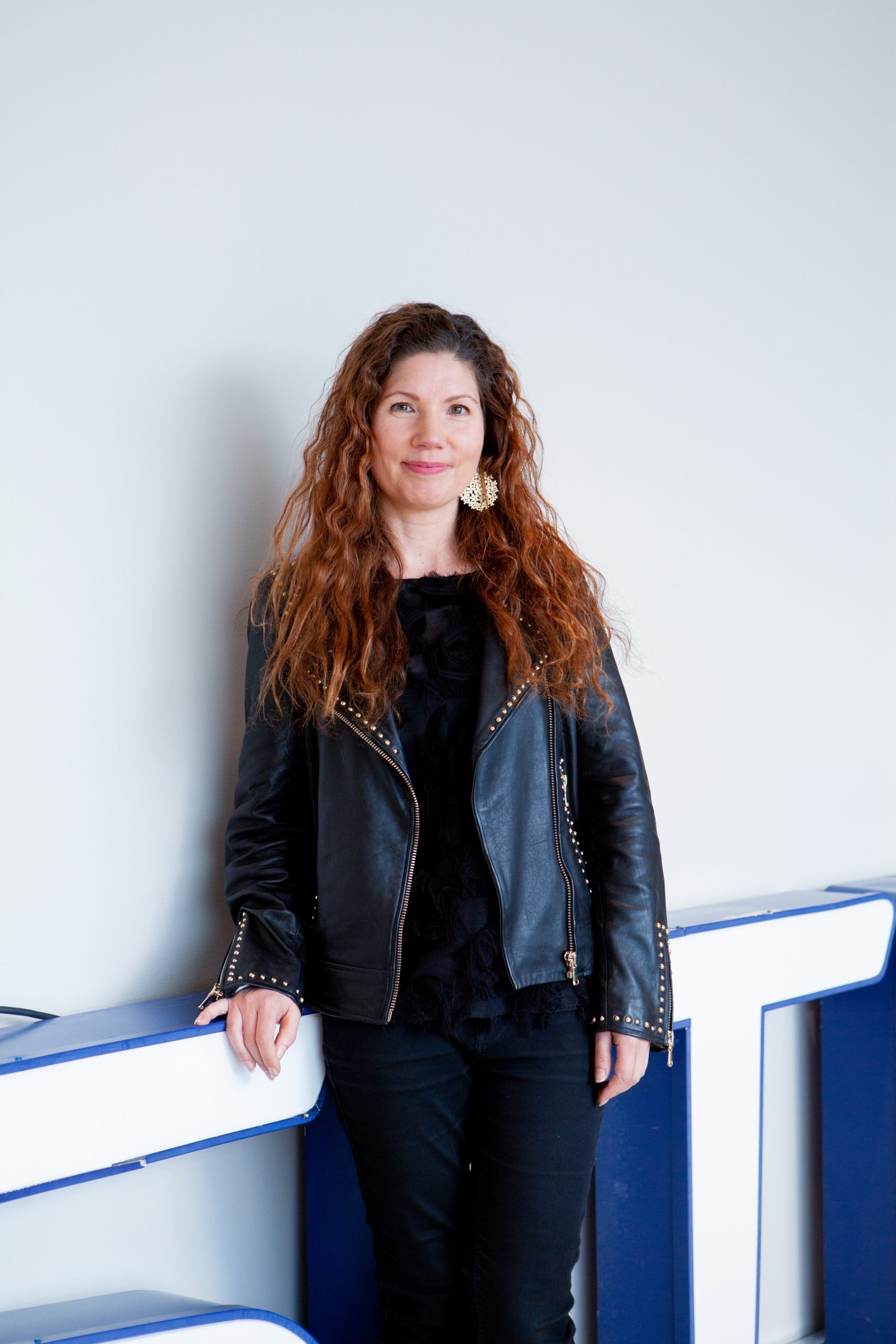
Global insights
Slovenia’s journey towards data-driven healthcare is part of a broader global movement. By learning from successful implementations worldwide and leveraging its strengths, Slovenia is poised to become an innovator in healthcare, offering improved outcomes, enhanced patient experiences, and an efficient and sustainable healthcare system for its citizens. Cases below1 serve as compelling evidence of the potential that lies ahead for the country, given its already promising trajectory in data management.
Over 180 countries have shared genomic sequences of COVID-19 variants on the GISAID platform. To date 2 million genomes have been catalogued. The platform is the most trusted for data sharing of COVID-19 genome data, with African and South American scientific contributions to the platform more than doubling between January – April 2021. Data has been used to assess vaccines and diagnostic medical devices.
Clinical trials data created using standardized data models and clear data governance processes such as creation of a data dictionary reduced the estimated costs of data sharing by 50% (from 3K to 2K in this study). You can find more information – here.
Researchers from the Behavioral Diabetes Institute and the Scripps Whittier Diabetes Institute examined caregivers’ experiences with real-time continuous glucose monitoring data sharing and its impact on quality of life and health outcomes for patients with type 1 diabetes. Most agreed that data sharing improved their quality of life by giving them peace of mind (88.4% parents; 87.7% partners), contributing to lowering their anxiety (84.8% parents; 86.3% partners), and helping them feel confident about their ability to help their child/partner (92.1% parents; 94.3% partners). You can find more information – here.
Green is the New Black
Fashion
editor
Alenka Žvikart
JOURNALIST AT THE ADRIATIC
The Green Capital. The Heart of Slovenia. A city that might sleep but never fails to recycle. In other words, Ljubljana. Ljubljana has ranked among one of the most sustainable cities in Europe and, on multiple occasions, earned the glamorous first place. And now the city is working hard to achieve a new goal: to be dressed to the nines – sustainably.
Fierce competitor
European capitals have always been prone to competing with one another – and sustainability is no exception. Ljubljana might be a small but fierce competitor. A green gem surrounded by nearby mountains, luscious greenery, drinkable water, 200 kilometres of cycling avenues, sophisticated architecture and a variety of eco-friendly shops is destined for success. Only one stroll through the city centre catches the eye of those with a passion for fashion and compassion for our planet. Second-hand stores are located on practically every corner, while the locals are not afraid to show off their vintage looks whilst strutting down the city’s many green carpets.
The Green Timeline
Ljubljana has become somewhat of a trendsetter when it comes to sustainability. In 2008, the city became the first capital to have an entirely car-free centre. In 2016, it was adorned with the title of the European Green Capital, given by the European Commission. In 2022, European Best Destinations and the distinguished Forbes magazine ranked Ljubljana first among Europe’s 20 Best Green Capitals.
Sustanable fashionistas
Ljubljana has already made unprecedented strides in eco-conscious urban development and commerce. But the domain currently experiencing rapid growth and innovation is sustainable fashion. With a growing customer base, many local and foreign businesses have begun to thrive. From second-hand shops to designer stores, they all have a common goal: fair trade and eco-friendly products. Original stores like Luci Clothing, Janja Videc, Nika Ravnik produce handmade and organic products for women that counteract fast fashion. Find the entire list of designers at this link.
Trains are the past and the future
Trains, the Environment and the Future
editor
Martin Pogačar, PhD
SPECIAL CONTRIBUTOR
Today trains are often seen as a means to alleviate the burden of travel on the environment. The worst culprits are flying and driving.
The primary motive may not always be related to environmental awareness but is rather pragmatic i.e trains mean shorter travelling time and less security control hassle. A journey from Munich to Berlin, for example, can take about four hours, during which time you can work, read or simply relax. However, travelling from Ljubljana to Nova Gorica, or abroad to Berlin, Vienna, or Budapest, is still a day-long adventure – or such is the popular myth!
Intercity train connectivity is indicative of not only geographical factors, but also economic and political decisions, or in many cases – non-decisions. For example, in the early 21st century, Slovenia was notoriously badly connected by railways, both nationally and internationally, as well as on a state level. There still seems to be little political understanding or comprehension of the increasing significance of the railways and their effects on travel and the environment. There appears to be a total lack of awareness that trains are the real future of travel – much more so than futuristic flying cars are!
The railway system and trains have a colourful history, amply represented in popular culture. A look at railways as represented in Yugoslavian documentaries can give us some perspective on post-war reconstruction, as well as on the relationship between people and the environment. And not least, they can encourage us to think about the state of the railways in Slovenia today.
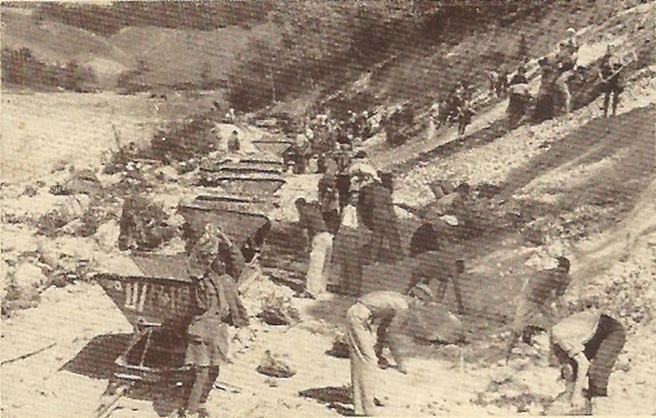
Railways first cut nad dug their way into Slovenia with the construction of the Vienna-Trieste line. The construction started in 1837 and the last leg was finished in 1857. It connected Vienna, the capital city of the Austro-Hungarian Empire with the port of Trieste, and was known as “The Southern line”. It grew to become a crucial link in the transport of goods and people alike. Over the decades, new branches connected people living in the vicinity of the railway with other parts of the empire; it also greatly facilitated trade and commerce and aided sprouting industries. The railway ignited imagination and travel on an unprecedented scale.
The machine, which Karl Marx described as the technical equivalent of revolution and gistorical progress when he said, “revolutions are the locomotives of history”. They harnessed the power of steam, fossil fuels and later, electricity. However, the railway also created ambiguity. Walter Benjamin (German Jewish Philosopher, 1892-1940) observed changes in the very composition of interpersonal relationships, stating that the railway represents “the first vehicle that creates and shapes the masses, whilst at the same time, a train ride allowed people to observe the faces of others close up, and in silence”. On the other hand, the historian, Wolfgang Schivelbusch, in The Railway Journey, emphasises the role of the train in the shifting human perceptions of the world which started in the 19th century and continues to this day. Ultimately, it was the railroad that contracted the world, caused the deaths of thousands in construction, and during WWII provided the lethal infrastructure for the industrial-scale mass murder perpetrated by the Nazis.
The train and the railway, the machine and the infrastructure thus epitomise the post-Enlightenment rationalisation, the march of science and the industrial revolution. They are a sign of progress and oppression, life and death, opportunity and destruction. The train represents a radical break in the ways people relate to each other and how they see and understand the world.
In this context, the Yugoslav post-war reconstruction may offer some insight into how the emerging socialist state, straddled between death and ruin in the aftermath of WWII, constructed the railways in 1945. It was seen as an industrial and symbolic part of the ideological push to not only reconstruct the country but also to create a future for the new socialist man. This is portrayed particularly well in newsreels and documentaries.
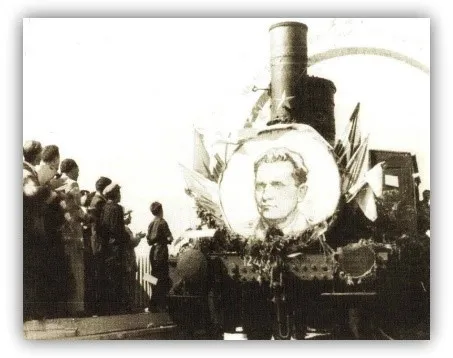
The 1972 documentary Diverzije na železničke objekte (Railway Object Sabotage, Zvonimir Saksida) presents some statistics about wartime railway infrastructure destruction. In the period 1941-1945, 1799 km of railroads, 830 railway stations, 2122 bridges, 90 tunnels, 1200 locomotives and 12,000 train cars were destroyed in the former Yugoslavia. This toll of destruction was caused by the occupation forces, resistance sabotage, and allied bombing, and was added to other infrastructural damage in a predominantly agrarian country. The human loss was enormous, nearly 600,000 people died, while, as in any war, the psychosocial damage to the survivors is much harder to measure. Before WWII, the former Yugoslavia was only sparsely industrialised.
In the immediate post-war years, socialist Yugoslavia ran a severely damaged railway infrastructure. It was grafted onto an inherited railway system which before the war was mostly concentrated in Slovenia, northern Croatia, Serbia and Vojvodina, with very few connections to Bosnia. This was the consequence of the fact that from early on up until World War II, the railway was attuned to the economic-political ambitions of the Austro-Hungarian (Slovenia, Croatia, parts of Bosnia) and the Ottoman Empires. Therefore, after the liberation in 1945, the new Yugoslavia was confronted not only with ravaged and almost non-existent railways but with an existing network more attuned to Vienna, Budapest or Istanbul as was noted by the Slovenian historian, Anton Melik.
In addition, the post-war situation was marked by large numbers of injured and traumatised people, who had emerged from the war without much formal education. However, this was to some extent alleviated by the fact that resistance units also had cultural sections that oversaw cultural activities as a critically important part of socialist ideology. This included theatre and poetry, as well as practical political and ideological education. E.P. Thompson, a British historian, took part in the international shock-worker (udarniks) brigades in 1947, namely the Šamac-Sarajevo construction site. He wrote the following in his edited volume The Railway: An Adventure in Construction.
A great part of the pre-war educated class had been killed in the war or had been discredited by collaboration with the enemy. Men of forty, fifty and over were performing miracles of self-education, but the bulk of the teachers, technicians and professional men of the future had to be found among the students and young workers of 1945. Some had walked out of their schools at the age of fifteen and gone to the forests, not to return for four or five years. Others had sment two or three years as prisoners in concentration or slave labour camps. The problems of psychological readjustment were considerable. Like many other Europeans, they had grown up in isolation from the cultural and intellectual life of other nations. Even the raw materials of education – the textbooks, libraries, instruments, schools and laboratories – were in short supply.
The ambition of the post-war socialist government was not only to (re)build the railways, but the infrastructure at large. The government also placed a great emphasis on the public education system and health care. These were seen as the conditions for the (re)construction of the material as well as the symbolic.
At this point, the railway became a more-than-material entity – a phenomenon that sublimated a wide variety of expectations and ambitions, dreams and an idea of the future. This was embedded in the brigade workers moto: “We build the railway, the railway builds us!” that connected the human with the future and the material with the symbolic. Implicity, it connected humans to nature through labour.
The railway construction work represented a radical intervention with nature, which, especially in a context of material scarcity and poor mechanisation, required a lot of manual labour with sub-optimal tools.
The workers had compressors and drilly, dynamite, wagons, and mining equipment. But most of the work took place without professional supervision and only the most primitive tools were used – bare hands, picks, axes, heavy wheelchairs with one wheel.
The 1947 film Omladinska pruga Šamac-Sarajevo (Sarajevo Youth Railway, Slobodan Jovičić) presents the results of months worth of the shock brigades work. The film focussed on the shock brigades who constructed the railway from the town of Šamac to Sarajevo in Bosnia. The film starts with maps and statistics: the length of the tracks, the number of construction workers (211,000 domestic and 4,000 foreign), the number of tunnels dug and bridges constructed, the amount of dirt moved (5,5 million metric tons) and concrete used (1.9 million metric tons). These are considerable numbers that in the modernist manner of keeping statistics tell of the human engagement with the earth and rock using sprades to dig and hands to tighten the screws.
The film narration describing the work is intercut with shots of waving flags, which is accompanied by ochestral music. Upon the arrival of the train to Sarajevo bringing in shock workers to a city flooded with people, the narrator states – “A new life is celebrated, a broad path to a happy future”.
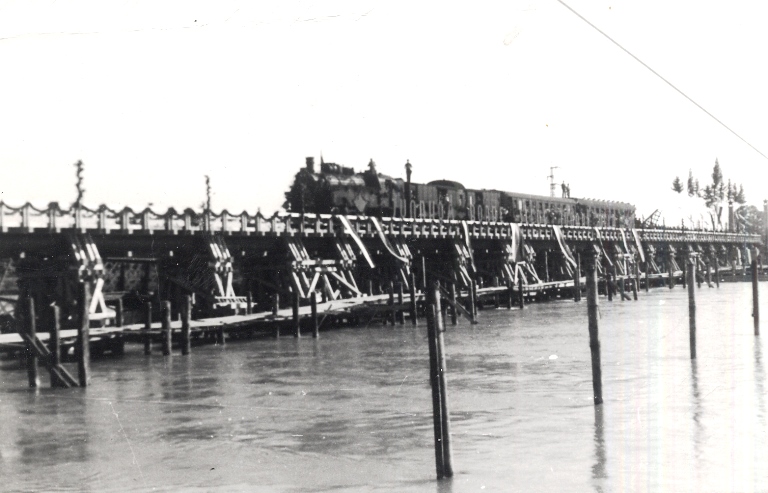
These scenes are interspersed with the scenes of the train ride across the countryside. Here, nature is the background, the scenes include the tracks, the tunnels, the bridges, and the laying out of tracks into the future. It is also an actor that observes and gives way to the construction of the new march of progress to steam and steel. “Enabling fast and cheap transport, a wide gauge railway enabled the opening of new forest construction sites, where today a persistent struggle for high productivity ensues”, the voiceover explains.
This alludes to the imperialist approach to the construction of nature – only when nature is mastered can it be exploited. Thus, the whole (re)construction enterprise was inscribed into the processes of modernisation into the processes of modernisation and industrialisation in which the machine figured prominently as an extension of humans overcoming themselves. Yugoslavian writer, Ivo Andrić, wrote: “When these efforts of mature people and experts are joined by the already known work enthusiasm of the youth, the real struggle begins with the struggle against the forces of nature, the struggle with the mistakes of the past, and the struggle against prejudice”.
Thus, it was not only the railway that was constructed. Anthropologist, Andrea Matošević, notes, “The opposition [of man in nature] is realized by a radical change in nature that is reflected in two ways – as a significant transformation of its morphology, but also as gaining the experience necessary for active transformation, and thus creating the new socialist man”.
The narrator in the Memories from the Tracks, (Uspomene s pruge), Hajrudin Krvavec, 1952) documentary, explains this concept against shots of trains driving through the land, crossing bridges, workers pushing cartwheels and shovelling, shots of explosions and workers singing. He says in an uplifting tone. “Again, the explosions in the valley of Bosnia mark the beginning of the construction of a new youth railway. Again, the silence of the landscape will be pierced by the songs of youth”.
The relationship between nature and humans here is crucial in terms of recontruction, as it involves labour, one of the ideological tenets of socialist Yugoslavia as a country of the working people, with the main means of engaging with the land. In line with the workers motto, “We build the railway, the railway builds us”, it presupposes a struggle with nature, reframing it as a condition of human progress, which also defines the construction of the new society, as the author in a 1948 book Sto godina železnica Jugoslavije noted: “On this Youth railway, the alliance between our working class, the working peasantry and the intelligentsia was deepened and further strengthened”.
This is coupled with some Slovenian newsreels showing images of railway construction and students enrolling in courses at the Faculty of Medicine, indicating the value and the societal need for both, not least because health is a necessary condition for an efficient workforce. What is more, a newsreel from 1946 shows children reading, clearly delivering the message about the importance of education and literacy for the construction and reconstruction of society.
In a somewhat younger documentary in 1954 Ljudi i čelik (Humans and Steel, Slobodan Jovičić), the relationship between humans, technology, and nature is shown in a somewhat different manner. The film depicts the transformation of the Bosnian town of Zenica, from a small ironworks hamlet into an industrialised socialist city. “A street appears here, a new factory there,” says the narrator, “every day, the traces of the old disappear”. These words are spoken against shots of old, derelict houses and new modernist blocks of flats, with tall chimneys and factory halls rising in the background. We see workers casting iron in heat and hear the deafening noise of hammers pouding steel – “the steel heart of our homeland”.
We also see President Tito addressing the shock workers arriving in Sarajevo in 1947, “You have shown to the entire world that Yugoslavia is the land of peace, that it is hard-working, and it is constructing. But remember now it’s time to learn and then it will be time to work. You need to learn what will enable you tomorrow to even better serve your homeland”. The scenes of hard-working women and men are interspersed with shots of lakes and forests, of cities at night with people going to the cinema or theatre. The new socialist man must also rest. And the viewer is then taken back again to see the night shift at the steelworks. The urgency of post-war reconstruction had transformed into everyday rhythms of life in peace.
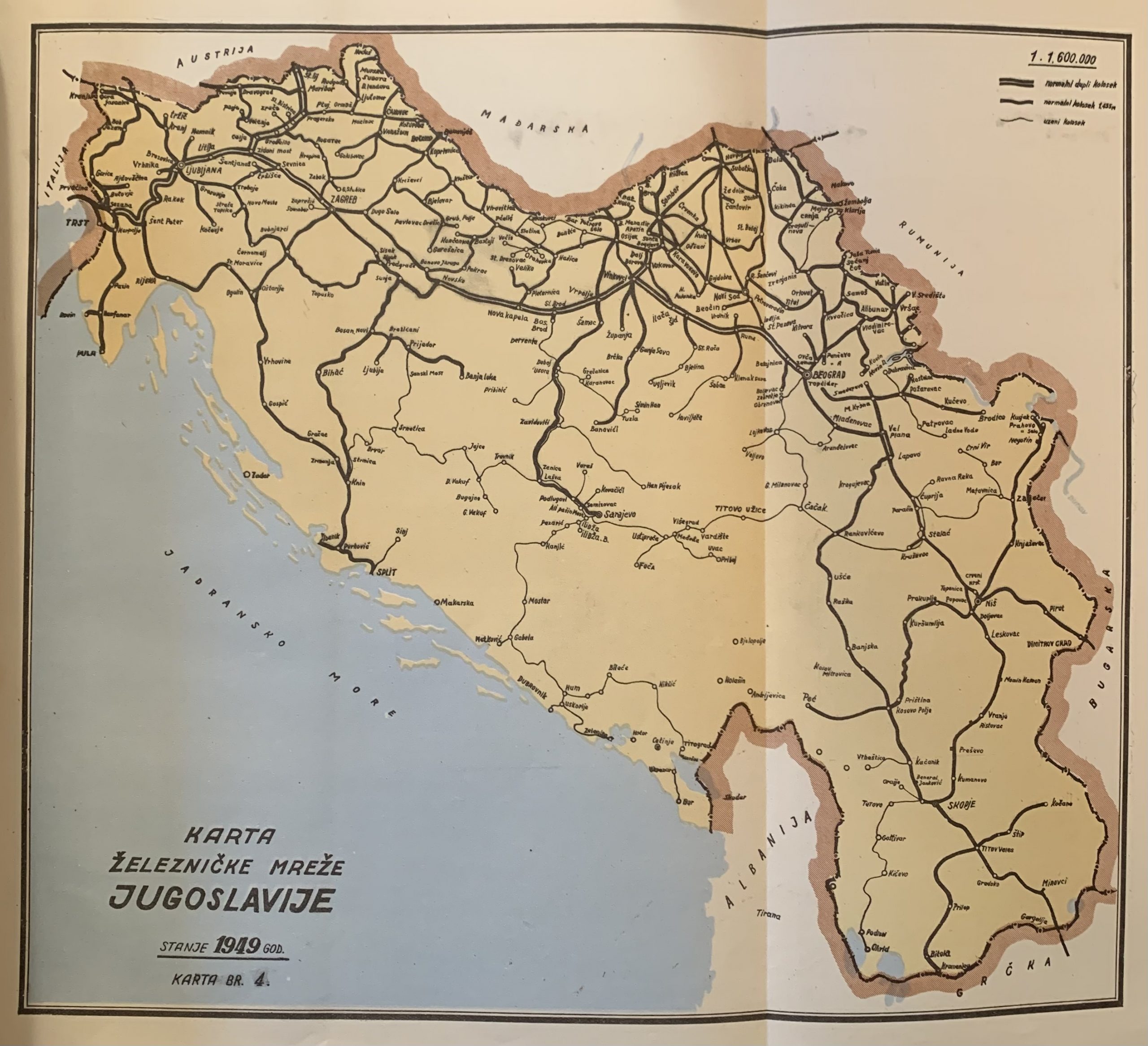
The documentaries reflect the drive to rebuild their war-torn homeland, which is in line with the modernist conception of progress that marked the post-war idea of a better future in both the soclaist east and capitalist west. It shows the very strong push to frame the human, nature and technology in the context of an ideology of reconstruction and progress. For a long while, Yugoslavian railroads also presented an infrastructure of brotherhood and unity and were the main transportation system that shifted goods and people across the land and beyond; and it remained so until the ideology of the car and individualised travel took over, resulting in disinvestment and the closing down of lines.
From today’s perspective, socialist Yugoslavia’s feat in construction unfolded in very specific geopolitical and historical conditions. They just might provide an idea that large-scale constructions, if their importance is acknowledged, do not need to take decades to construct. For at least 30 years it has been clear that the railway is the future of mass mobility, therefore it is all the more shocking that the state of Slovenia lacks any strategy on how to revive and improve its railway system and connect it beyond its borders. If the ride from Berlin to Munich takes just over four hours, why does the ride from Ljubljana to Nova Gorica take three?
THE ADRIATIC
This article was originally published in The Adriatic Journal: Strategic Foresight 2023.
If you want a copy, please contact us at info@adriaticjournal.com.
Slovenia is a hotspot for climate change
editor
In recent years, Slovenia has witnessed undeniable signs of climate change, warned experts at today's Chapter Zero gathering in Occidental Hotel in Ljubljana, organised by Chapter Zero Slovenia. From record-breaking weather events to economic disruptions and environmental threats, the country is at a critical juncture.
»Climate change is undeniably real«, said Andrej Gnezda, acting director at the Directorate for Climate Policies at Slovenia’s Ministry of the Environment, Climate and Energy, citing the extreme weather events in Slovenia last summer. He highlighted how these events are profoundly affecting the economy: “Economic unpreparedness is evident in cases like the automotive factory (KLS Ljubno), which had to halt production due to its premises being flooded.«
He added that the window of opportunity to achieve our climate goals is shrinking, but this has sparked a global competition for green economy, with Europe aiming to be climate-neutral by 2050 – an economy with net-zero greenhouse gas emissions. Resources are increasingly directed toward green technology and sustainable practices, underscoring the urgent need for collaboration between the government and businesses.
A rapidly changing atmosphere
Žiga Zaplotnik, PhD, from the European Center for Medium-Range Weather Forecasts (ECMWF) and the Faculty of Mathematics and Physics of the University of Ljubljana, painted a dire picture of the rapidly evolving climate. He noted that in the past two years, the composition of the atmosphere has changed at a tenfold faster pace than ever before. These changes have far-reaching consequences, including rising sea levels due to warmer water. Zaplotnik also pointed out that the increasing water vapor in the air is particularly impactful on Slovenia.
“The Alps are a hotspot for climate change, and Slovenia is one of the fastest-warming habitable regions. Our scenario, based on current policy changes, suggests that by the end of the century, Slovenia’s climate could resemble that of North African countries.”
The average temperature in Slovenia has already risen by 2.5 degrees Celsius, Zaplotnik said, which has significant implications for the country’s infrastructure, much of which is built on outdated climate data models.This was evident during the August flooding, he added: »Without climate change, the country’s infrastructure can withstand up to 200mm of rainfall. However, with changing weather patterns, Slovenia has experienced rainfall as high as 300mm (in August), pushing the limits of its infrastructure.«
Climate change is everyone’s responsibility
Though governments and businesses have to lead the way to combat climate crisis, participants at the event also emphasised the crucial role of Individual responsibility in mitigating climate change. The ideal target for each person is to produce no more than 2,500kg of CO2 emissions per year, stressed Meta Pezdir, project manager at Circular Change. To assist individuals in this endeavor, Finland has developed the PSL web application – a CO2 footprint calculator designed to aid people in tracking and reducing their CO2 emissions.
Larisa Grizilo, head of human resources and communications at A1 Slovenia, underscored that the root of the environmental crisis is human behavior characterised by greed, selfishness, and apathy. A cultural transformation is essential to drive meaningful change, she noted.
Businesses like Evrosad, a producer of fruits and vegetables, are feeling the impact of climate change through reduced product quantities and higher prices. Zavarovalnica Sava, a leading insurer, highlighted the need to update risk assessment models due to shifting climate patterns.
Slovenia, like the rest of the world, is at a crossroads where climate change is no longer a future concern but an immediate reality. Experts, businesses, and individuals must come together to address the challenges and embrace sustainable practices to secure a better future for the country and the planet.
Shaping Modern Healthcare Involves Mutiple Stakeholders
Business Conference Health 2023
editor
The Adriatic team
Setting up a modern, resilient healthcare that caters to current needs with patient at the centre was the focus of the discussion at the conference Health 2023: A View into the Future of Healthcare. The conference was organised by Delo Media House, in collaboration with the Chamber of Commerce and Industry of Slovenia and program partner, the Institute for Strategic Solutions.
A robust, inclusive digital health system is a necessity and its establishment has to engage both patients and stakeholders involved in their care, said the keynote speaker Stefan Buttigieg MD, a public health medicine specialist at Malta’s Ministry of Health. The core of such system is strong digital infrastructure and standardised data that will support the use of AI in the future, he added. However, Buttigieg cautioned that establishing such a system requires an efficient and streamlined small team, with a full commitment from all stakeholders, including politicians across the board. Here, regular and transaprent communication is key, he concluded.
AI will have an increasing role in healthcare
The importance of the role that AI will play in healthcare provision was also underscored in the following panel, moderated by Petra Juvančič, Executive Director of the Manager Association. Nataša Hajdinjak, CEO of Prva Osebna Zavarovalnica, arguedthe AI will significantly impact our healthcare system in the future, while Dr. Jurij Šorli, Director of Topolšica Hospital, sees its role primarily in accessing data crucial for healthcare services. Šorli also emphasised that a well-functioning healthcare system has to rely on empathy, solidarity, and tolerance.
Prof. Dr. Petra Došenović Bonča, associate professor at the University of Ljubljana’s Faculty of Economics, pointed out that one of the key challenges in the current public healthcare system is finding ways to adapt and respond more quickly. In the public healthcare system there are no market incentives, so we need different incentives that will lead to change, she noted, emphasising that comprehensive approaches are needed when introducing changes:
“When we talk about healthcare strategy, we cannot discuss it without structural reforms related to the development of the Slovenian economy. I also believe that effective healthcare cannot be achieved with soft budget constraints. In Slovenia, we need a combination of funding sources, and we also need to eliminate the negative attitude toward voluntary health insurance.«
Dialogue between ministries is key
Urška Močnik, Director of the Idrija Retirement Home, highlighted the disconnection between the healthcare and social care sectors, which are overseen by multiple ministries. Under the current government, three ministries are oveseeing the sectors, with each advocating different aspects, and the lack of dialogue between them is creates significant challenges. She pointed to the Finnish model as a good practice example, where unified ministries oversee both health and social care.
Štefanija Lukič Zlobec, President of the Spominčica Association and the Patients’ Association, also emphasised there is lack of dialogue in Slovenia among the stakeholders in healthcare and social system. “Representatives of the Medical Chamber, the Ministry of Health, the Ministry of Labor, the National Institute of Public Health, insurance companies, hospitals, and healthcare centers should meet once a month and solve things. We no longer have time. Time is crucial,” she remarked.
Data is crucial for improved treatments and outcomes
Tjaša Sobočan, Advisor to the Minister for Digital Transformation, discussed strengthening trust in digital technology with guests at her panel. According to Dr. Rado Pišot, Director of the Scientific Research Center Koper, medical treatments contribute 20% to establishing an effective healthcare system, while other factors, such as preventative medicine, play a significant role.
Janez Bernik, Head of Strategic Partnerships at Roche Slovenia, emphasised the transformative potential of data. When collected and used effectively, he explained, data can significantly impact the quality of diagnostics and treatment outcomes. A case in point is the global cancer patient registry developed by Roche, which will enable oncologists to find cases similar to their patients, including treatment methods.
Anže Droljc, director of business development from Better, a global provider of digital solutions for healthcare, does not see data fragmentation as a problem. However, it is important that patient data are stored independent of applications, as defined by the new Slovenian legislation. It is also crucial that data follows the patient, which will helpt to overcome the challenge of actively managing a patient’s record at the point of care in real time, he added.
Participants at the conference also highlighted the challenge of insufficient digital literacy when discussing the importance of building trust in digital solutions. Only about half of the Slovenian population has basic digital competencies.
Discussing advanced solutions aimed at enhancing healthcare digitisation during his presentation, Preben Terp-Nielsen, CEO of the Abena Group, also emphasised the importance of placing the patient at the center. He added that technological advancements must consistently align with high-quality service delivery.
Eva McLellan, CEO of Roche Slovenia, pointed out that the benefits of digital technology extend beyond the use of mobile devices, but it can significantly improve healthcare as a whole. For example, the data that can measure and predict population health, can support healthcare professionals in their decison making.
Alenka Umek, Head of the Public Procurement Department in Healthcare at the Chamber of Providers of Medical Technology and Services (MedTech Slovenia), presented a treatment approach based on shared responsibility and outcome-based payments. Such approach would have a positive impact on multiple stakeholders, including patients and their families, the healthcare system, as well as the industry, she argued.
Slovenia as a tugboat for Montenegro
A tale of two Balkan countries
editor
Vuk Koljenšić, Draženka Laketić
JOURNALISTS AT THE ADRIATIC
If there is a tug that can direct the accumulated potential of our country towards something good, then the tug for Montenegro and Slovenia were once under the same flag, today they are two independent countries in different stages of development.
Mostly because of the way the residents of these countries accept change. Slovenians are more open to everything that brings progress, while Montenegrins are steadfast even in their decision to slow themselves down. But the two nations are very fond of each other.

They are connected by air, with good neighbours and thanks to highways, they can reach each other relatively quickly. And most importantly, they are united by the people who left Montenegro for Slovenia and, to a lesser extent, those who did it in the opposite direction. In Ljubljana, all those who love Slovenia but pine for what they left behind in Montenegro, are gathered together by the Union of Montenegrin Societies, consisting of two groups from Ljubljana and from Maribor. The members of these associations are responsible for preserving their traditions and passing them on to those born of Montenegrin descent but under Slovenian skies. There are dozens of such families, and apart from numerous cultural and entertainment events, they all celebrate the 21st of May, Montenegro’s Independence Day, with particular pride. Love for the homeland does not fade, they keep it in their hearts forever.
Born in the embrace of the two countries are Petar Petrović Njegoš and France Prešeren, who are poets of equal bearing, and both studied all over the world. Their inspiration, derived from the 19th century, denotes the spiritual hearts of the two countries. That is why it is even more significant that a monument to Prešeren has been located in Podgorica, Montenegro since 2018, and that in Njegoševa Street, Ljubljana, a monument to Montenegro’s great man Njegoš was erected 2014.
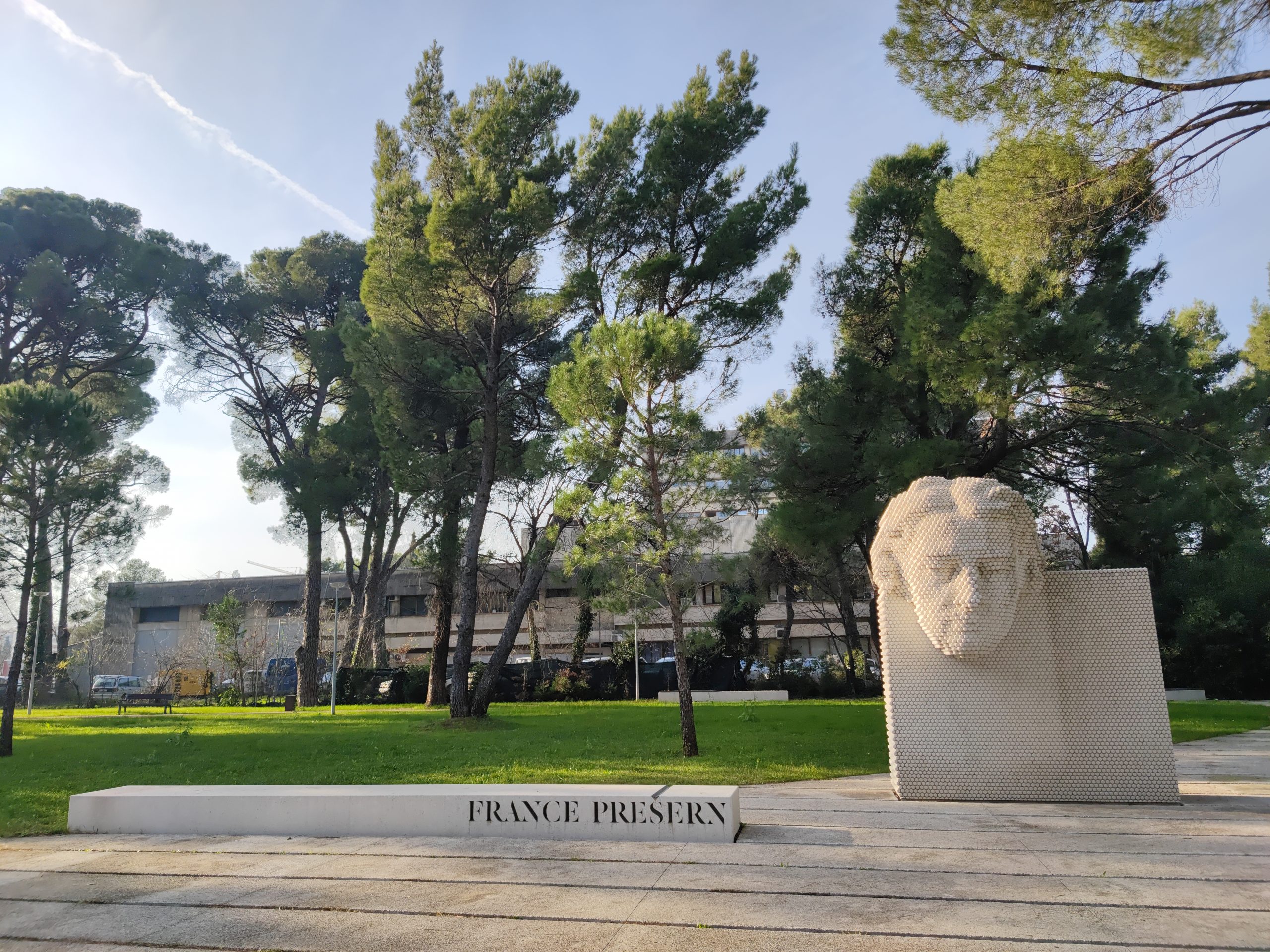
The desire to exchange the Montenegrin easy-going lifestyle with the more regulated Slovenian system can be observed by the annual Erasmus or exchange of students that has been taking place for years. Although the languages are different, they are relatively easy to pick up – in both directions. Krempita and Kremšnita are examples of local languages situated somewhere between the two.
It is certainly not a coincidence that Slovenia is a declared the cleanest country in the world, and that Montenegro declares itself the first ecological country in the world. These “firsts” best describe the fundamental differences – the Slovenians finish their work and wait to be praised, and Montenegrins say that they will do everything well even though they have not started yet. But they complement each other well and that is why it is important to nurture the sincere friendship that exists between the two countries, which can also be good economically.
And let’s not forget, the bronze medal won by the national handball team of Montenegro in the Slovenian stadium Stožice, Ljubljana’s multi-purpose indoor arena, earning Montenegro third place in Europe. Anyone who was in Ljubljana during the tournament knows that in every part of the city people were celebrating with their Montenegrin buddies and will remember the wonderful atmosphere, which was equally exhilarating for both countries.

THE ADRIATIC
This article was originally published in The Adriatic Journal: Strategic Foresight 2023.
If you want a copy, please contact us at info@adriaticjournal.com.
MONTENEGRO - THE HARD PEARL SHELL
A land of endless adventure and enchantment
editor
Vuk Koljenšić and Draženka Laketić
JOURNALISTS AT THE ADRIATIC
If there is a country where two extremes come together, and the sum of these two opposites is transformed into a harmonious whole, then this is Montenegro.
This is a country where salty Mediterranean air combines with the clean sharpness of mountain, air, a land where mountains and sea collide. This is a country where autumn can sometimes occur long before the end of summer, and winter often arrives at the same time as spring. In Montenegro, it’s possible to experience all of that on the same day if one is travelling from the far north of Montenegro to the Adriatic Sea.
Here, people are the warmest where it is coldest and the kindest people are those to whom life itself is not kind. That’s Montenegro for you. Montenegro has one colour in its name and a thousand colours in its beautiful landscape. Montenegrins have been welcoming tourists for centuries and are still learning much from those who come to visit, learning that they, themselves, must learn to appreciate every metre of its magnificence and beauty. A rich tapestry of life and history is located in just 13,000 square kilometres of natural beauty where everyone can find enjoyment and wonder, and almost everything they want from a perfect vacation. And this was also true back in history, during the time of Petrović when the first accommodation facilities for “outsiders” (tourists) were constructed, and in 1864, when the first hotel in Cetinje, “Lokanda”, was built.
The development of Montenegrin road infrastructure was accompanied by the construction of “khans” (hanovi), which were the characteristic resting places for travellers, and more recently, better connections between cities have also brought about greater movement of the local people.
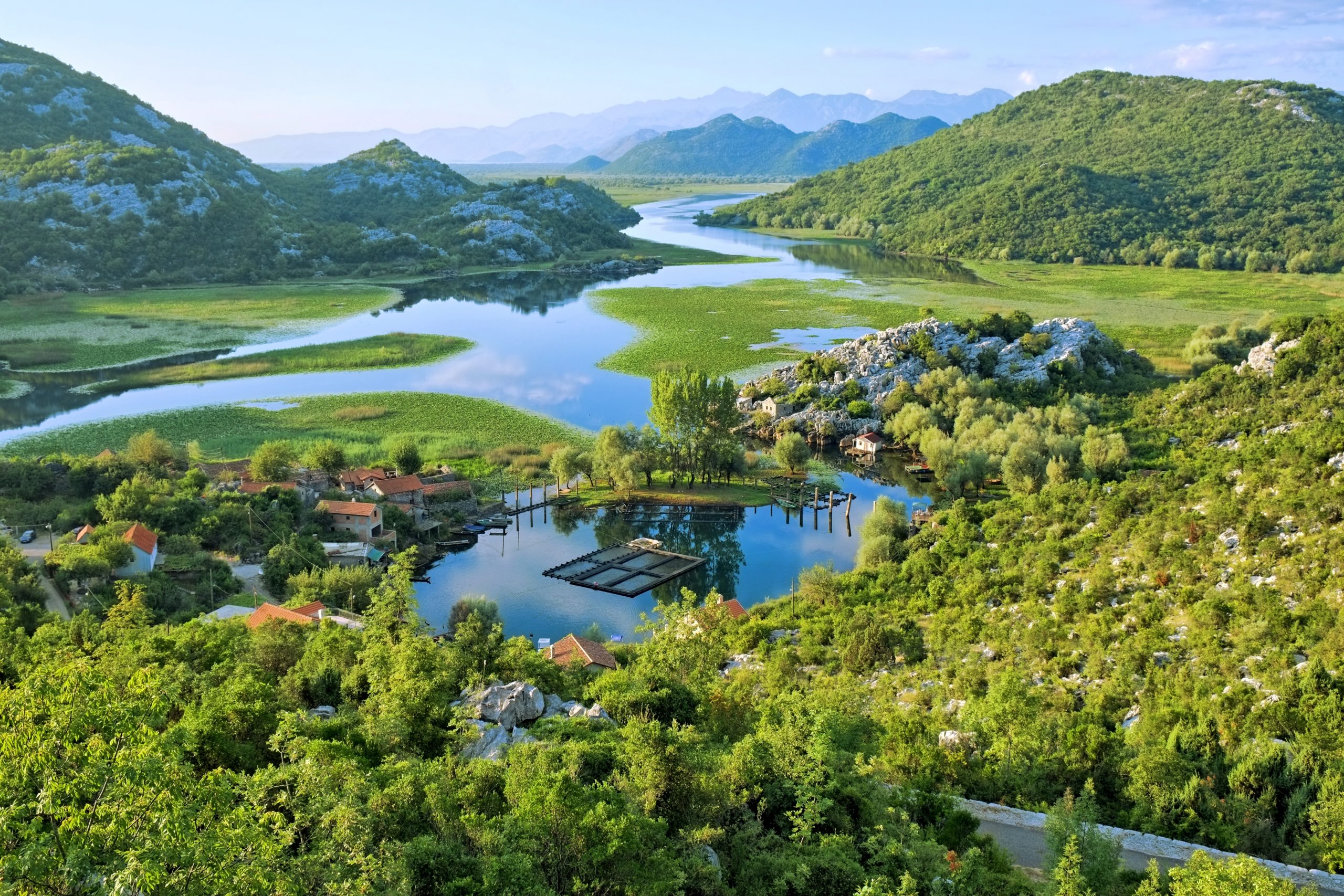
The beauty of the coast had already brought about the construction of guest houses on the green beach of Herceg Novi, and since then tourism has developed rapidly and today it makes up almost a third of the country’s GDP. This makes Montenegro the leading country in Europe where tourism contributes the greatest share to its economy.
It took almost an entire century for Montenegro to reach the headlines of world-famous magazines, however, nowadays it is increasingly ranked in the Top 10 Destinations in the World, and in a very short period of time, Kotor reached first place on the famous Lonely Planet list, and subsequently became a magnet for tourists from all over the world. According to Motor locals, only a few years before this happened, a leading journalist from an internationally renowned magazine was on vacation in Kotor. He openly publicised his love and admiration of the place not only to his friends and family, but to colleagues and newspapers, and in so doing, he almost single-handedly popularised the place to the extent that it is now well-known, loved and revered all over the world. However, apart from journalists who spread the word about the incredible beauty of Boka, there are also grateful Montenegrins and social networks that transmit what the camera lens sees to all ends of the earth. As a result, the Bay of Kotor became known as the southernmost European fjord and now thousands of people visit and admire it every year. The now-famous Black Lake is a place where unclean and negative thoughts are cleansed by the purity and clarity of the water. And most importantly, whoever visits the country should not bypass one of the world’s most impressive constructions – the Tara Bridge. It is a symbol of men’s struggle with nature. Almost 100 years ago, a miracle was created with “opanci” also known as Montenegrin shoes, which bridged the seemingly insurmountable shores with the biggest wooden scaffolding ever used, at that time. The proportions of the five arches speak for themselves about the miracle of engineering that continues to hold and support the huge concrete structure more than 150 meters above the Tara River. The Tara River is known as The tear of Europe.

Every year thousands of people raise their adrenaline levels as they go down the Tara River in the traditional beechwood boats, looking upwards at the almost vertical cliffs from which sprouts gravity-defying vegetation from apparently naked stone. Dozens of glacial lakes are scattered between the mountains, and each of them has a name that tells a story. It is here that the fairies live who were responsible for shaping destinies, as well as devils who have caused torment and disaster. There are even places where saints are said to have squeezed water from stone. Only in the small town of Žabljak, the highest situated town in the Balkans, will a resting traveller be able to hear the stories and legends of the Tara River and its surroundings, tales that cannot be heard anywhere else in the whole country.
Montenegro can be magical, but it can also be cruel, however there are many areas that are still untouched and nature can still be seen in its raw beauty.
Almost half of Montenegro can be seen from the Lovćen mountain and if Montenegro had to be summed up in two words, savage beauty are the two most appropriate words. There is also a lot of wilderness, but wilderness isn’t really sufficient to describe the Montenegrin landscape. If the words savage or even wild describes everything we see, then beauty will describe everything we feel. The traveller will also experience a variety of different mentalities in Montenegro. As you travel along each of the borders you will experience helpful and neighbourly values, and from the colder north, you will encounter real human warmth, while going further south you will find that a more Mediterranean spirit is prevalent – calm with a melodious way of speaking and living.
The people of Montenegro are widely recognised as gracious hosts who go above and beyond the call of duty. In some remote villages, it is common place that the villagers will accept you as one of their distant relatives and you will leave feeling that you don’t owe them a single cent. Indeed, tourists and travellers came to the villages first, and mass tourism followed. The village people thought they had nothing to offer, when in fact they have everything. And this is exactly how the story of village tourism developed, aided by village communities who happily shared their everyday life with strangers, offering them food, drink and sustenance and simple life pleasures. This was the time when the farmer transformed into a host of the highest rank, providing authenticity and genuine hospitality both in terms of a unique ambience and healthy cuisine, both of which are hard to beat, and cannot even be glimpsed at in the expensive resorts. However, at the other end of the hospitality scale, there are now lots of expensive hotels located on the seafront, all with magnificent views. On a clear day, one can even see Italy. In these encapsulated resorts, guests are offered tranquility and peace in an abundance of luxury and world-famous franchises are showing increasing interest, fully believing in the potential that Montenegro offers. Connection by two local airports and the nearby Dubrovnik airport makes Montenegro easily accessible to all. Accessible air connections and social media are rapidly launching Montenegro into the lists of the most desired tourist destinations for travellers from all over Europe, the Middle East, and even North Africa. A combination of international travel promotions for Montenegro, an excellent representation at Expo 2020 in Dubai and enticing promotional road shows around the world display the most exquisite images to people in all parts of the world and ensure that Montenegro is a place to be put on their wish list. Those who come here for the summer season invite new friends on the following day, and tourists are starting to explore Montenegro in all four seasons. And when they ask if a week is a sufficient time to visit Montenegro? The answer is “Yes, but it takes a lifetime to research”.

THE ADRIATIC
This article was originally published in The Adriatic Journal: Strategic Foresight 2023.
If you want a copy, please contact us at info@adriaticjournal.com.
A journey into the slow-paced life of rural Montenegro
Ethno village Montenegro
editor
Vuk Koljenšić, Draženka Laketić
JOURNALISTS AT THE ADRIATIC
Montenegro is an ideal destination for those interested in rural and ethno-tourism, as it is home to a variety of traditional cultures and lifestyles. Visitors can explore the breathtaking mountain villages and charming rural towns, visit the traditional stone villages in the north, or admire the magnificent coastline, especially around the Bay of Kotor. There are also numerous traditional festivals and events that take place throughout the year.
One not-so-conventional competition happens in Etno selo Montenegro, where people gather to complete in lying down competitions. We sat down with the owner of the ethno village, Milonja Blagojević.
Where did the idea for the ethno village of Montenegro come from?
Just over a century ago, my great grandfather, Kojo, bought property and land where the ethno village of Montenegro is now situated. He had arrived with his two sons, Simeun and Vukosava, his daughter, Miladina, and our grandfather, Vukola, to start a life in farming and breeding livestock. As a boy, our grandfather planted a maple tree, which is now over 100 years old, and under whose branches the family rested after a hard day’s work farming the land. The same tree now provides tourists with shade and positive energy. Today, my brother Radonja and I, with our families and our parents, Stojan and Zork, have managed to preserve and maintain the traditional methods of food production and the handed down customs of over one hundred years ago. Our grandmothers, Grana and Miloslava, have also passed on traditional recipes for preparing food such as kačamaka, cicvara, pies, lamb under the bell, homemade bread, and numerous cheeses and dairy products – and we continue to pass these traditions and recipes on to our descendants.
Part of the village encapsulates the Nevidio Canyon, and we came up with an idea for hosting foreigners with whom we could share our appreciation of the beauty spots and landscape of Piva, the Canyon and all that the Piva Nature Park has to offer.
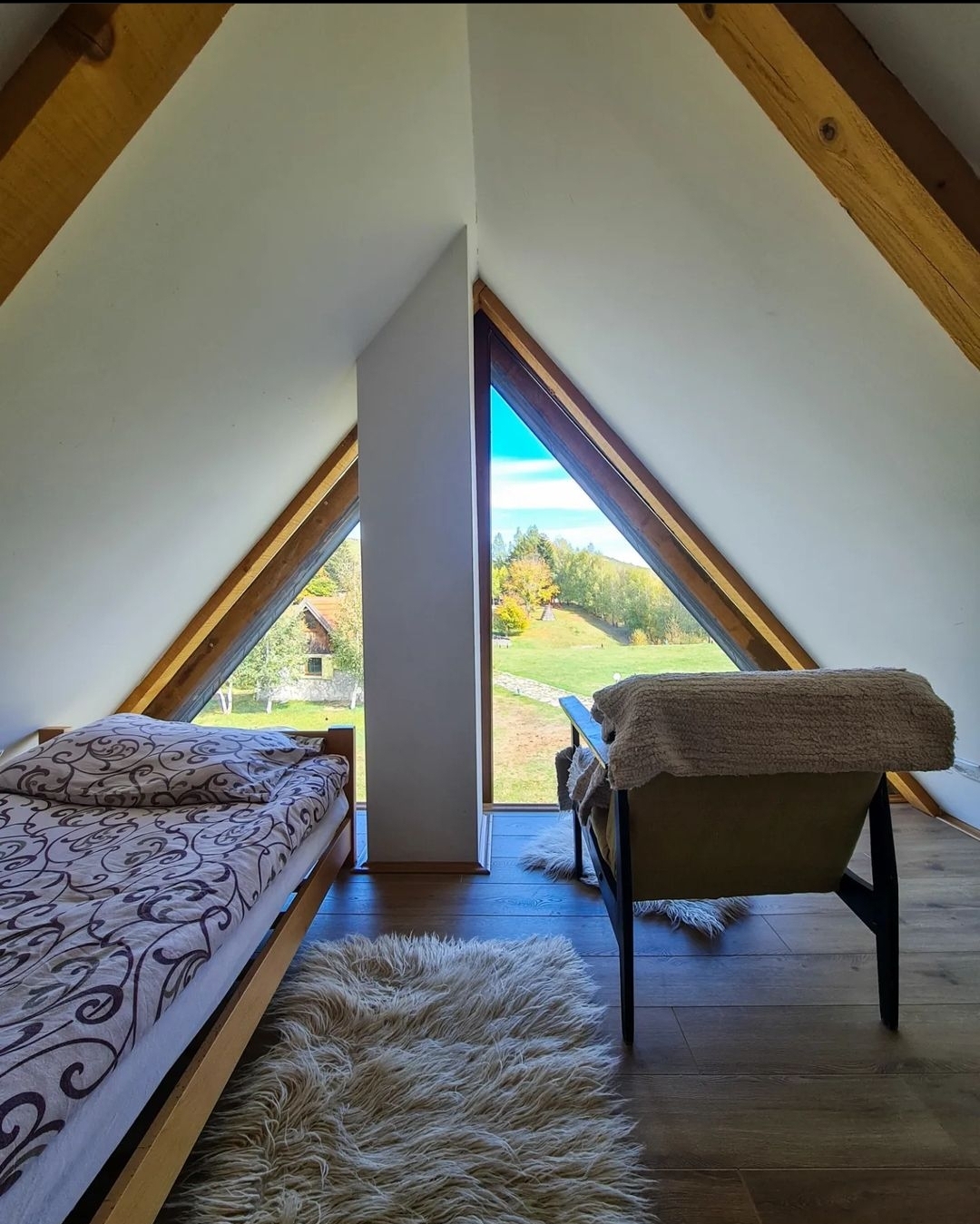
From Idea to Realization: How much effort and innovation is required for such a project?
The ethno village bears the same name as its mother country – Montenegro in fact, the country Montenegro gained its independence the day after our village was founded. The ethno village has proved an enormous success and won numerous awards, including the Ministry of Tourism award for the most innovative project in 2006 and the UNDP award for the best business plan in 2008. The recognition and awards have resulted in a rapidly growing public interest and an increased number of visitors every year, and in turn, the visitors have generated many innovative ideas and events for the area. The project has also received great media support with over 3000 newspaper articles, 150 guest appearances on various TV networks and over 5000 mentions in the Internet. From spring until autumn, the average number of tourists crossing the border to Šćepan Polje on the road that passes by the ethno village, is about 2000 per day, and if that is multiplied by the number of days in the peak season, the figure amounts to over 250,000 people crossing the border. Every year, the ethno village also hosts over 10,000 schoolchildren who visit the nature reserve and its surrounds. In addition, our family was the initiator of the Organic Production Program, and we also publish various books and brochures based on preserving our cultural heritage and traditions, such as A Guide to Medicinal Herbs from Piva, a traditional Montenegrin cookbook called Montenegro – from Field to Table, and one on the beauty and antiquities of Montenegro.
Despite a low start-up investment, and seemingly impossible financial calculations – we have managed through time, patience and preseverance to successfully achieve our boyhood dream.
By promoting rural tourism, do you think that Montenegro can offer quality attractions and places of interest in the north of the country as well?
As far as the variety of attractions available in Montenegro is concerned, we believe that the events and places of interest on offer is often more complete in the north, where businesses are mainly owned by families, and the families are actively involved in the products that they are promoting. This genuine family immersion in the “Montenegrin product” attracts an ever-increasing number of tourists to Montenegro every year. The tourists themselves have also developed a growing empathy with the country and are paying more and more visits to it, which makes us happy. The basis for the development of rural tourism is the unspoilt countryside and ruralism, which is even more pronounced in the north than in the south. Much of the coastline is now quite urbanized and developed, and travellers cannot experience the unspoilt landscape and sights related to the countryside and nature as they can in the north.

You are recognized around the world as a locality that organizes interesting competitions, in which the “lying down competition” is leading the way. Can you tell us more about that?
We often talk of the myth about Montenegrins being lazy in a humorous way, but now we have turned it into an actual manifestation in the form of a lying-down competition. This competition aims to send a message to the world that it is not so easy to lie down, and also to stimulate the curiosity of the general public about Montenegro and its culture. As a result of this competition, we received a lot of attention and interest from all over Montenegro, as well as from the region. It was one of our most successful promotions. In the ethno village, we also have cheese museums, music festivals, and a museum of postal traffic and telecommunications. We are also planning to extend the range of museums to other categories over the coming period.
Is there any funding for them from the state?
Up until now, we have had solid cooperation from the Ministry of Agriculture, who have provided us with machines for agricultural production. However, we believe that some support from the Ministry of Tourism could prove greatly beneficial, since together we could improve village and rural tourism for the betterment of the entire economy.
What are your plans for the future, what would you like to do and what is your vision?
Our overall goal is to amply satisfy our foreign and domestic guests. We want to continue to improve our tourism and hospitality business, and this is a perpetual process. This year we improved our cabins by redecorating the interiors and renovating the attic, in which we added a glass viewing area from where the whole village can be seen.
Our guests always return to us, and that is an excellent indicator that we are doing the right thing.

THE ADRIATIC
This article was originally published in The Adriatic Journal: Strategic Foresight 2023.
If you want a copy, please contact us at info@adriaticjournal.com.

